+ 1 954 554 5765 - [email protected]
- Create Account
Signed in as:


Welcome to TheOceanAcademy

Superior RYA Yacht Crew Training in South Florida
The Ocean Academy is a fully accredited and recognized Training Center for the Royal Yachting Association (RYA). We offer superior Theory and Practical Yacht Crew Training
RYA Yachtmaster Offshore/Coastal (Power)
- We are the ONLY school in Fort Lauderdale to independently offer accredited Theory and Practical training for RYA Yachtmaster Offshore and Coastal. This course includes one week of theory training in chart-work, navigation rules, meteorology, tidal height calculations, aids to navigation, voyage planning and more. Week two includes practical training on our 40' (12m) training vessel, followed by the RYA Practical Examination. The Duration for this course is 6 days, with a total of 40+ hours of direct contact. Included in your tuition is the RYA Student Pack which includes course notes, Training Almanac and Training Charts. Plotting tools are not included, but our Yachtmaster FAQ will help you understand the tools that are needed. We keep our student/instructor ratio to 4:1 maximum for the best training experience. Please contact Steve from the contact information below for a consult and information on booking your course.
RYA Power Boat Level 2
- The Ocean Academy is fully accredited to offer the RYA Power Boat Level 2 Course (PBL2). We offer this course in a two-day theory and Practical course, or a three day evening class for those crew members who are working on-board during the day. The course is offered on our modern and well equipped 23' (7m) center-console training vessel, with electronic chart plotter, DSC equipped VHF radio and all the latest safety equipment. Included in the tuition is an online voucher for the Start Boating course notes booklet. We keep our student/instructor ratio to 3:1 for the best training experience. Please contact Steve from the contact details below for a consult and infomation on booking your course.
TheOceanAcademy is your best resource for RYA Training In Fort Lauderdale, including custom yacht crew training, PBL2 and RYA Yachtmaster Offshore(Power) instruction
Sign up to hear from us about specials, sales, and events.
For more information:
This site is protected by reCAPTCHA and the Google Privacy Policy and Terms of Service apply.
The Ocean Academy
915 Middle River Drive, Suite 318, Fort Lauderdale, Florida 33304, USA
Open today | 09:00 am – 05:00 pm |
|
750 West Sunrise Blvd, Fort Lauderdale, Florida 33301 USA
Copyright © 2024 The Ocean Academy - All Rights Reserved.
Powered by GoDaddy Website Builder
Yachting Monthly
- Digital edition

How to pass your Yachtmaster exam
- Chris Beeson
- September 16, 2015
The global standard of sailing qualifications is achievable for any experienced, competent skipper. Tom Cunliffe explains how to pass your Yachtmaster exam
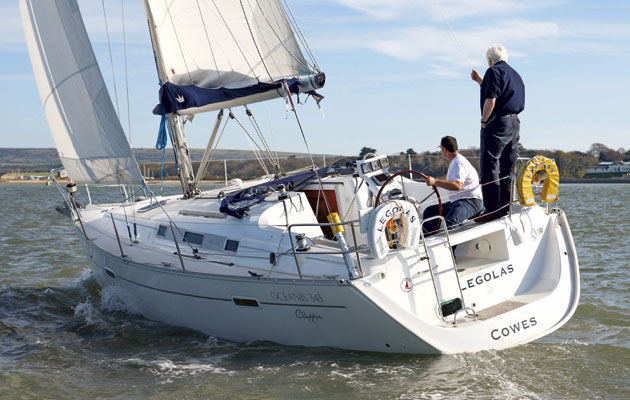
The only certificates accepted by the authorities are those issued after an at-sea examination. To become a fully-fledged Yachtmaster, the practical test is the only one that counts Credit: Graham Snook/YM

Tom Cunliffe is an RYA Yachtmaster examiner. He has passed and failed hundreds of Yachtmaster candidates over the years
We in the UK are exceedingly fortunate. Just as the English language is the best bet for a world traveller, our very own RYA/MCA Yachtmaster qualification happens to be the global standard for sailing. It’s required for anyone planning to become a professional and, thanks to the continuing efforts of the RYA, Brits who sail for leisure still don’t have to carry any proof of competence in home waters. Despite this blessed lack of regulation, the Yachtmaster certificate remains the logical target of many a self-motivated sailor. It also represents the icing on the cake for those looking for the reassurance of an external assessment.
Courses and exams
Yachtmaster training can take place on a boat or in a classroom. A shore-based course, either at desks in a school or via the increasingly popular Internet distance learning programmes, ends with a Yachtmaster theory exam. Success in this will help a student in subsequent qualification upgrades, but it is not officially recognised. The only certificates accepted by the authorities are those issued after an at-sea examination – the Yachtmaster Practical . To become a fully-fledged Yachtmaster, this practical test is the one that really counts.
Yachtmaster Prep

Meteorology matters: a favourite with examiners is to produce a weather map and invite you to analyse it. Be ready and know your subject
This is a non-RYA course and, as such, has no official status or syllabus. However, it is run successfully by many RYA sailing schools to prepare candidates for an examination which generally follows on at the end. Up to four students spend several days together on the boat in which they will be examined. The benefits are that they get to know one another and their yacht under the guidance of a highly qualified Yachtmaster Instructor. The general feeling is that these tutors can’t teach you much you don’t already know in a week, but that they are very good at coaching the best out of those skills you already have. Prep courses are great for brushing up on how to jump through the various hoops an examiner may set up. What they can’t do is make someone who doesn’t have suitably constructive mileage into the confident skipper examiners are looking for.
Coastal or Offshore – what’s my level?
Recently, the old Coastal Skipper ticket has been superseded by the new ‘Yachtmaster Coastal’ certificate. The qualifying mileage for this MCA-recognised qualification is 800, with passage and night-hour requirements being relaxed in comparison with ‘Yachtmaster Offshore’, which keeps its 2,500-mile entry level. Either is a proper Yachtmaster qualification and can be described as such. Only the often-dropped suffix distinguishes the two. The syllabi are identical, the variant is the rigour of the examination. Apply for ‘coastal’ and the examiner, recognising that you have less sea-time, will be more inclined to cut you a bit of slack.
The RYA has noted that most candidates are really only making ‘coastal-status’ passages. In real terms, this includes an annual trip across the Irish Sea, the North Sea or the Channel in a calculated weather window, which is very different from setting off from Ramsgate towards Norway with five days and potentially serious conditions ahead of you. The implications should be clear: unless you need the Offshore ticket for professional reasons, if in doubt, go for Coastal.
Preparing yourself and the boat
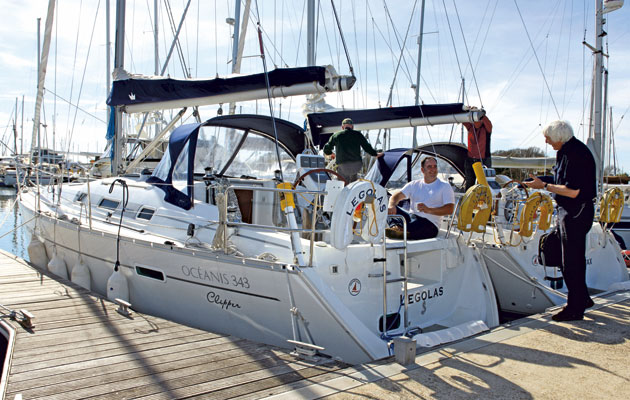
A relaxed candidate with a mug of tea makes a better impression than a harassed-looking one
If you’ve signed on with a sailing school, you’ll be stuck with the boat you’re given. You can be confident that this yacht ticks all the official boxes by being coded for commercial use, but while some are very up-together, others are not. If the boat is generally sloppy and scruffy, you can at least make an effort to stow the mainsheet in a seamanlike manner while you are nominally skipper.

Neatly coiled lines reflect well on the skipper
You can also ensure that fenders are hung at the same level, sharpen up the guardrails and see that things generally look as though somebody knows the difference and cares. Then the examiner won’t hold the ratty lifebuoys and the smelly bilge against you.

Mind that your dress and demeanour don’t make a bad first impression
Try to be ready in good time so that you aren’t involved in a last-minute kerfuffle. If you’re relaxing in the cockpit with a mug of tea when the examiner arrives, he or she will be more impressed than if you’re frantically working out tidal heights and scuffling through the chart table. Wear sensible kit. Don’t worry if it’s not this season’s fashion. My examiner turned up in an old duffel coat back in 1978 and I think I was wearing a canvas smock and a flat cap, but the smock was freshly laundered and the cap was right way round…
The main thing is that you can sail, but an examiner is always pleased to be freed of any hassle with the paperwork. Most of us are no better with admin than you are, so make our lives easy by producing an up-to-date first aid ticket and all the rest, plus a cheque made out to the RYA – not the examiner, perish the thought!
Passage planning

Your passage plan should be realistic. Keep it simple and be ready to adapt and update as things develop
You may be given the opportunity to produce a passage plan before the examiner arrives. If so, make it realistic. Don’t plot every course to the last degree. After all, you don’t know what speed you’ll make or what the wind will really do. Check tidal gates, distances, viable alternatives and the weather. Look at any hazards, sort out a time to leave and have a plan for updating as things develop. That’s about what you’d do if there were no exam, and that’s what I, at least, want to see.
Examination on your own boat
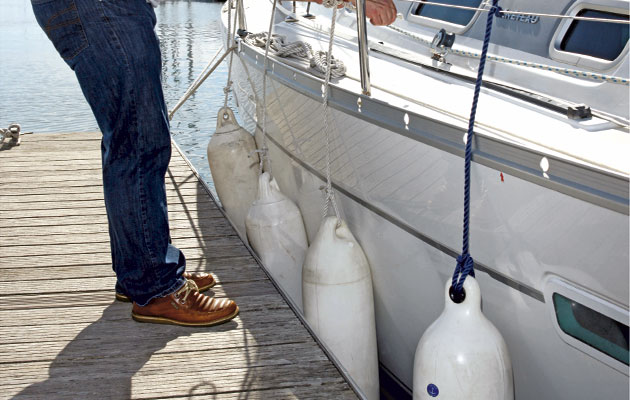
A nicely level line of fenders sends a good signal to the examiner
You don’t have to go to a sailing school to be a Yachtmaster. I love it when a candidate asks to be examined without training on his own boat. Don’t worry if she isn’t coded. There’s no legal requirement that she should be. Most of mine haven’t been either, and I couldn’t care less.
As an examiner, I want to see that your priorities are sound and that you’re thinking clearly and for yourself. On the day, the yacht must be clean, tidy and seamanlike. Waterline crisp, sail covers Bristol fashion, not looking like some poor bird with a broken wing, ropes carefully stowed, a comprehensive chart kit for the waters to be sailed, the makings of a meal plus snacks and, of course, everything that counts should be working.
What the examiner is looking for
Feeling relaxed in close quarters

Competent, confident boathandling counts well in your favour
If there’s one thing that will upset an examiner, it isn’t that you forgot to put on your lifejacket, it’s that he feels insecure when you begin manoeuvring in a marina. Take it from me, there’s nothing worse than sitting at the backstay wondering what you’re going to hit. If the boat slides sweetly out of her berth with everyone knowing what’s required and no shouting, then moves away easily with the examiner confident you’re in charge, that you’ve checked the next alleyway for collision risk, that your choice of speed is sensible and efficient and that it never enters his head to feel anxious, you’re well on the way to a pass after five minutes. No course can teach you this. It can only tick the box confirming you’ve managed it once or twice. The rest is up to you and your sea time.
Wind awareness
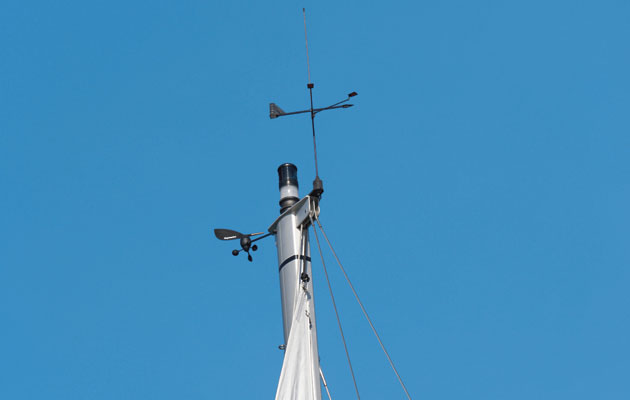
You should always be aware of the true wind direction and how it will influence any manoeuvres
Here’s another subject you can’t learn on a prep course. Knowing where the wind is and how it relates your position to any impending manoeuvres is critical. I often ask a candidate where the wind is coming from when he’s approaching a situation we both know will involve some sort of gyration under sail. If he looks instinctively at the masthead or, worse still, an instrument set to apparent wind, he’s dropped a bagful of points. At this stage, his mind should be setting up where the boat will best be placed to make her critical turns. Apparent wind isn’t going to help him much. What he should be doing is glancing at the water and noting the tiny ripples to assess what the true wind is actually doing. I’m often amazed at how many folk have never been shown how to do this. Racing sailors can handle it in their sleep, because they need to predict windshifts, but cruisers tend to get lazy, so make sure you can read the wind.
Good sailing
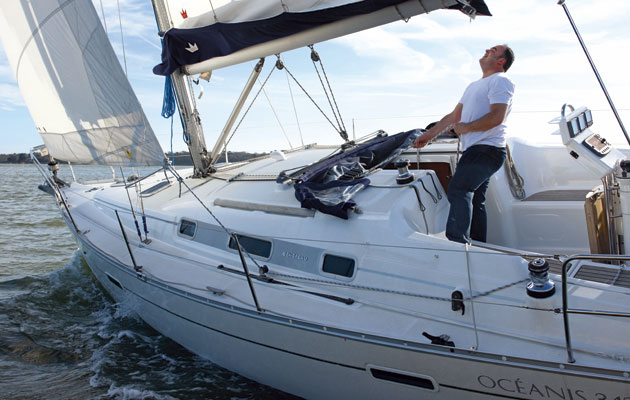
No need for incessant, race-style tweaking, but pay due attention to sail trim while the yacht is under way. If there’s a mainsheet traveller, use it
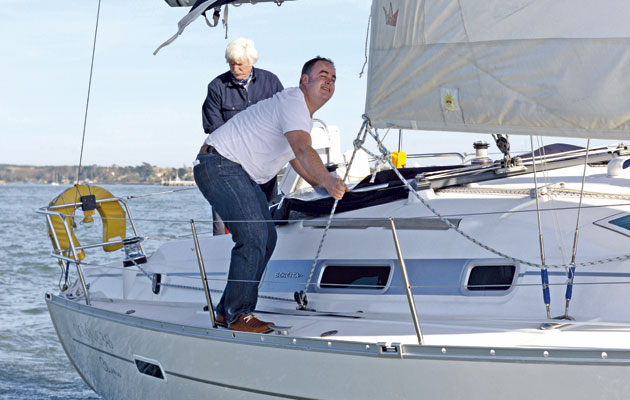
Ensure that the genoa sheet leads are properly positioned for the point of sail you’re on

Lovely: both mainsail and genoa set up with the right amounts of tension and twist
All examiners hate to see a yacht sloppily sailed on passage. Make sure that your crew are using the traveller, that genoa fairleads are properly positioned, that the main is well set up with kicker and mainsheet tension for twist. Above all, do not sail over-sheeted. It’s a dead giveaway that you just haven’t been out there enough yet.
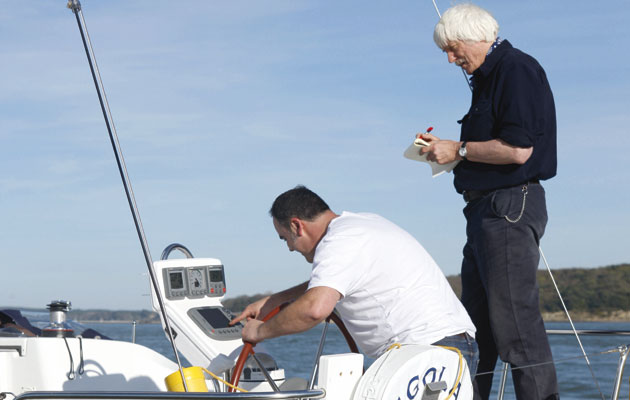
Too much staring at the plotter screen betrays nervousness
In the days before GPS set navigators free, people used to fail exams by what we called ‘sailing the chart table’ rather than skippering the yacht. Assuming the test to be all about some sort of imagined ‘correct navigational practice’, candidates nailed themselves to the navigatorium when they should have been up on deck directing operations and watching out for the ship coming up astern that was suddenly looking bigger every moment. Well, guess what? Nothing has changed. This remains a big problem with neophyte Yachtmasters.
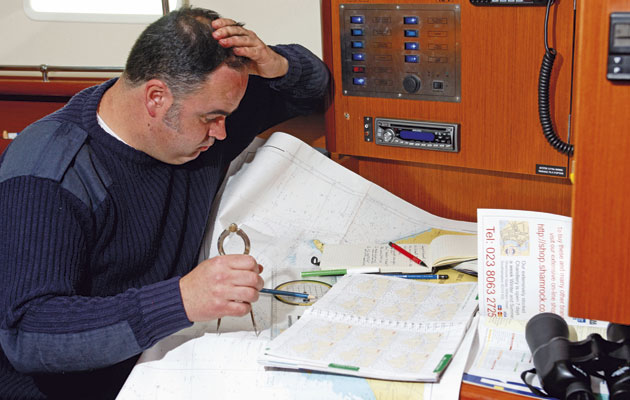
Sail the boat, not the chart table
The secret is to plan well, then nip below every so often on passage to keep an eye on what’s going on in the chart department and whizz back on deck pronto to carry on skippering the boat. I’ll lay a pound to a penny it’s what you do when there’s no examiner on board, so have the confidence to back your own usual practices. This is particularly important at night in crowded waters. An unsuccessful candidate often fails himself by allowing disorientation to creep in, simply by not keeping the true perspective on events, which can only be found on deck.
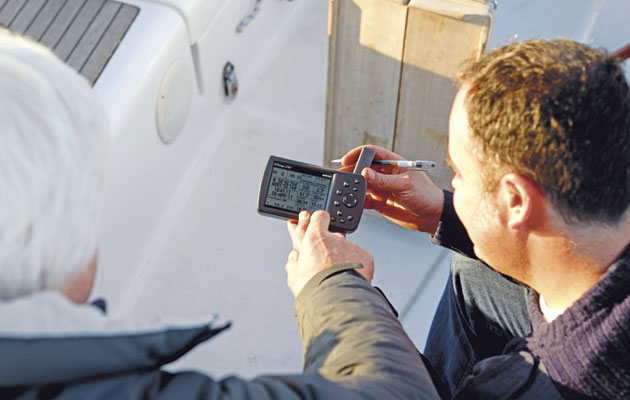
The use of electronic nav-aids such as GPS is not ‘cheating’ – it’s an integral part of navigation
All examiners have their own take on use of electronics. Personally, I want to know my candidate is making modern aids to navigation, including a chart plotter if there one, an integral part of his navigational policy. The idea, as one candidate suggested, that use of GPS is somehow ‘cheating’ is incomprehensible to me. I will almost certainly ask at some stage that the yacht be navigated classically, to see how easy my man is with what, for most people, are now backup skills. If I’m unconvinced by his performance, off he goes to think again.
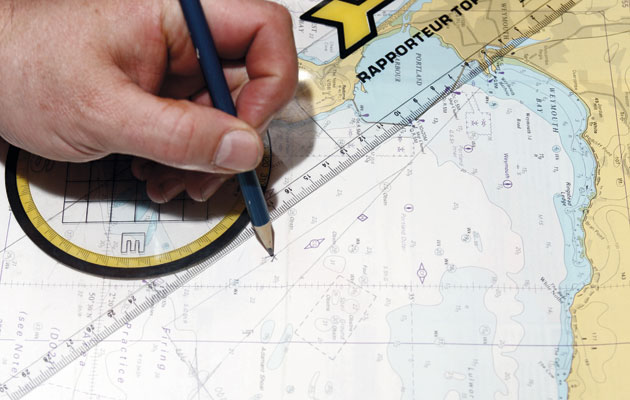
Your chartwork should be fluid and accurate
Skilled chartwork comes with use, and no amount of last-minute swotting can make up for weeks of doing it as a matter of course. Plotting traditional fixes is a good giveaway these days. With GPS all around us, we only do this for real when electronics fail. I’ve seen a person take 15 minutes to select three objects from a background studded with lights, then plot the results. The yacht had moved over two miles in the meantime…

It’s absolutely vital that you maintain a decent logbook during the exam
It’s absolutely vital, whether navigating with a giant chart plotter or a Walker log, that you maintain a decent log book. Without this, if GPS fails for any reason at all, you’re lost, Mate, so is your exam, and quite right too!
Take command
One of the most important questions on most examiners’ private lists is how good the candidate is at taking charge. If he’s managing well, we probably won’t even notice that he’s in command, that his crew all know what’s expected of them and that their skipper is quietly checking that they’re doing it. Good leadership is seldom about barking orders, and never about ignoring all on board, yet leadership is what being a Yachtmaster is all about. First, you must be sufficiently comfortable with your own skill levels not to have to worry about little things like picking up a mooring. Only then can you consider what may go wrong for the poor soul on the foredeck in a gale at midnight.
The classic skills
These are what most people imagine success in an exam is based upon. Actually, these basic skills merely help an examiner build up an overall picture of the candidate. It’s generally not a hanging matter if one manoeuvre goes a bit haywire. Even a grounding is often more interesting for what the candidate does about it than for the fact that it has happened. After all, nobody is perfect, especially under the stress of an exam.
Man overboard
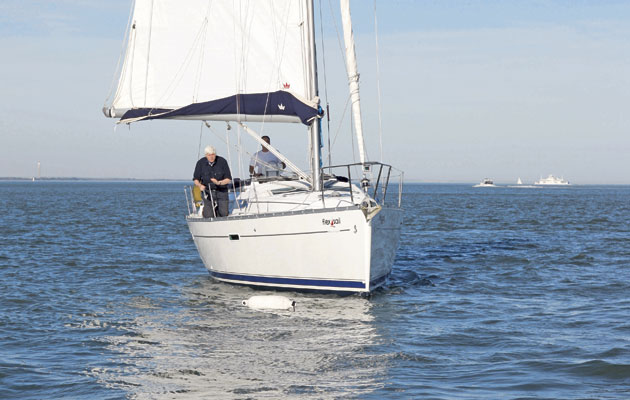
An effective, confidently executed man overboard drill speaks volumes about a candidate’s boat-handling ability but it’s not necessarily curtains if the manoeuvre goes a bit haywire
Errors in principle are not popular with examiners. Mistakes under pressure may sometimes be forgiven, and man overboard is a case in point. If the boat sails past the dummy with her mainsail full and the examiner asks, ‘What went wrong?’ It won’t get you much of a score if you reply, ‘I was going too fast.’
‘Candidate’s speciality, stating the bleeding obvious,’ the examiner will note on his pad, and move on, downhearted.
However, if you say, ‘I’m kicking myself because I was too far upwind and couldn’t de-power the main. I tried to get onto a close reach but I misjudged my approach,’ he’s more likely to take a lenient view – especially if you’ve opted for ‘Coastal’.
Securing the yacht alongside
When I was examining instructors regularly, I’d often sail up to Poole Quay (a tidal wall) shortly before closing time. I’d hop off the boat as soon as she touched the piling, saying, ‘You sort her out, skipper, I’m off for a quick pint.’ I’d then do just that. When I returned 10 minutes later, if the yacht was neatly snugged down with four lines ashore, ends on the dock, a fender board in place, sails neatly stowed and all hands below cooking and relaxing, the guy was in good shape for a pass. If I found discussions on deck about whether to ‘hand the end back for a spring’, and people blundering about in the dark, things didn’t look so bright for our hero. Have a system and know how to execute it.
… and don’t forget
Mooring and anchoring

Mooring and anchoring under sail should present no challenge to the aspiring Yachtmaster. When in doubt, drop the mainsail
These are Day Skipper skills that should pose no threat to a Yachtmaster candidate. Under sail, just remember first to assess whether the wind is with or against the tide. If you get lucky and it’s against, drop the main and arrive stemming the stream, spilling under headsail or creeping along under bare poles. If wind and tide are at all ambiguous, never forget the old adage – when in doubt, drop the mainsail.
Meteorology
As forecasting has become more comprehensive and accessible, I’ve noticed a reduction in candidates’ capacity to understand what’s going on and to read a bulletin creatively. Anyone who can’t describe the typical cloud sequence on a North Atlantic depression gets nil points from me, and failure to understand the basics of air masses is going to run up a black mark too. A favourite with examiners is to produce a weather map and invite their Yachtmaster to analyse it. Be ready, and know your subject.

Tom sees no reason not to have a chart in the cockpit, but some examiners disapprove of it. Be ready to justify your choice
Many candidates produce excellent pilotage plans for entering a strange harbour. I’m happy with that, and most examiners love it. Personally, I prefer to sketch a few notes on the actual chart and have it in the cockpit held down with a winch handle, yet I’ve met examiners who’d be horrified to see a chart on deck at all. So there you have it. Do what suits you best, then be ready to justify your choice. Actually, this advice is good across the board. The examiner wants to see what you really do, not some fantasy you’ve cooked up because you think he might like it. That is a weak candidate’s policy and it often backfires.

No shortcuts here, you just need to know your stuff – and finding the time to learn isn’t difficult
So far as the MCA is concerned, this is the crunch. Examiners are encouraged to demand high standards in this subject, and there’s no reason for a candidate, knowing full well he is to be put on the griddle, not to have the regulations burned into his heart. The best way to be exam-proof is to invest in A Seaman’s Guide to the Rule of the Road, available for modest money from all good chandlers or Bookharbour.com. Place it prominently in the heads some months before the exam and devote five minutes of the shining hour each day to digesting its wondrous contents. The book makes it easy and there’s no excuse for disappointing the Board of Trade!
For all the latest from the sailing world, follow our social media channels Facebook, Twitter and Instagram .
Have you thought about taking out a subscription to Yachting Monthly magazine?
Subscriptions are available in both print and digital editions through our official online shop Magazines Direct and all postage and delivery costs are included.
- Yachting Monthly is packed with all the information you need to help you get the most from your time on the water.
- Take your seamanship to the next level with tips, advice and skills from our expert skippers and sailors
- Impartial in-depth reviews of the latest yachts and equipment will ensure you buy the best whatever your budget
- If you are looking to cruise away with friends Yachting Monthly will give you plenty of ideas of where to sail and anchor
- Certificates of Competence
- RYA Yachtmaster
What is an RYA Yachtmaster?
The RYA Yachtmaster® Certificate of Competence is often the ultimate aim of aspiring skippers. It is a well known, highly respected qualification worldwide, proving your experience and competence as a skipper. Unlike other qualifications in the cruising programme, there is no formal training course to become an RYA Yachtmaster. Instead, provided you have sufficient experience, certification and seatime, you can put yourself forward for an exam to test your skills and knowledge. There are a number of RYA navigation courses that will help you prepare for your exam. Many RYA Yachtmaster candidates also choose to book themselves into an RYA training centre for some specialised exam preparation training, but this is not compulsory.
You are capable of coastal passages
You are competent to undertake passages up to 150 miles offshore
You have the knowledge and experience to sail worldwide
- Arranging your exam
The Coastal and Offshore exams are practical tests afloat, and the Ocean is an oral exam. Find out more about qualifying passages, exam fees and how to book.
With an RYA Yachtmaster Coastal, Offshore or Ocean Certificate of Competence you can start a career at sea.
You'll need to have the appropriate qualification for the vessel and area of operation.
If you want to work commercially, you'll need a commercial endorsement.
Find out more about other RYA professional qualifications.
- Getting the most from a Yachtmaster Fast Track course
Can you really become an RYA Yachtmaster in as little as 14 weeks? Check out our top tips for getting the most from a Yachtmaster Fast Track course...

- Information
- Call Us: 0203 006 3717 (9:30am-4:30pm)
Everything You Need To Know About RYA Yachtmaster Theory
In last weeks blog we broke down RYA Day Skipper Practical and how it fits in to your learning progression. RYA Yachtmaster Theory is the next step in that journey and on its completion you opens up RYA Coastal Skipper Practical Course as well as several other interesting optional courses you could take. This blog will tell you Everything You Need To Know About RYA Yachtmaster Theory.
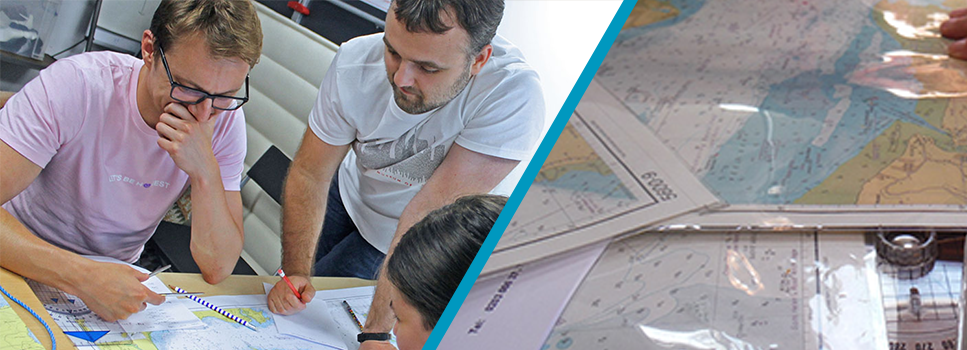
What is RYA Yachtmaster Theory?
Being a theory course its shore based in a classroom or online via zoom. It assumes you have completed RYA Day Skipper theory or possess a comparable level of knowledge as it teaches you more advanced navigation techniques. You will learn about navigating safely on coastal and offshore passages. If you plan to progress to Coastal Skipper practical, Yachtmaster Coastal or Yachtmaster Offshore then you should be taking this course.
What RYA Yachtmaster Theory teaches you?
The course in essence will teach you advanced theory of navigation and meteorology. For those with extensive sailing experience with previous navigational experience, the course builds upon those basic skills. You will be developing a comprehensive depth of knowledge and understanding of navigation theories, techniques and practices.
www.firstclasssailing.com/rya-courses/yachtmaster-theory-course
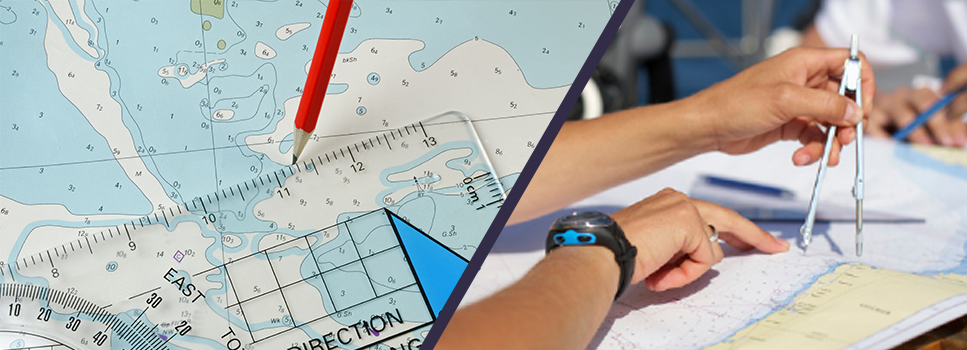
What can I expect to do?
RYA Yachtmaster Theory is an in-depth course with a wide subject field. But in short it will include position fixing, magnetic compass, tides, tidal streams, buoyage, lights, pilotage, and introduction to GPS and plotters, meteorology, collision prevention regulations, safety, navigation and passage planning among a lot more to numerous to go in-depth about in a short blog.
Where & When Can I take RYA Yachtmaster Theory?
There are three different ways you can take Yachtmaster Theory. We offer classroom based courses in our Southampton (Shamrock Quays) location and across London. The classroom based course runs for 8 weeks ( 1 evening per week) and a weekend, or over 2 and a half weekends. If you have a suitable space we can also come to your office and run the program for your colleagues. Due to the impact of COVID we adapted our shore based courses for online zoom learning. This became very popular over the pandemic and the flexibility it offers means it has maintained it popularity. Like the in person course is typically run over 8 weeks however is sometimes compressed with multiple lessons a week. Finally we have a purely online version that allows you to dip in and out as and when it suits you. Support from an instructor is only a phone call or email away
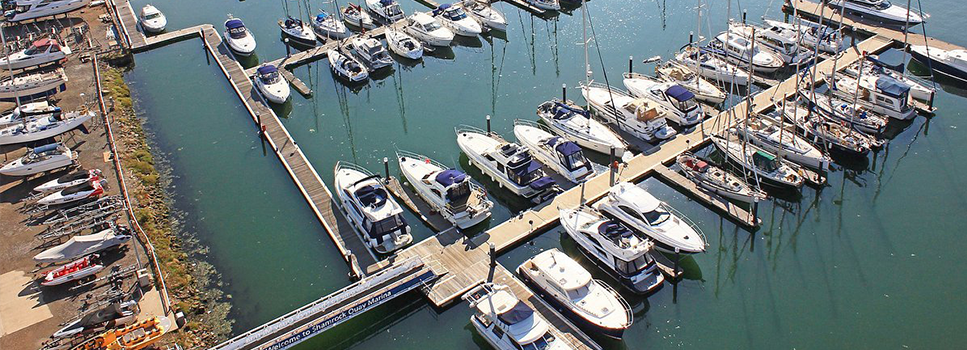
What Equipment Will I Need?
No matter if you doing RYA Yachtmaster theory in a classroom, via zoom or online, each format comes with a extensive set of materials to make use of. All students will receive a RYA work pack of charts, tide tables, port information and mock questions. A website with course slides will also be accessible after each lesson to help you refresh you memory. Those taking the Classroom or Zoom versions will also receive s Cockpit Companion.
To complete the course you will need a set of plotter and dividers. We can provide them to you for £20 to be collected at your first lesson. If your doing the Zoom or Online versions we will courier them to you. You can also opt to buy your own however they will likely be more expensive. If you have already completed RYA Day skipper theory or have the comparable experience you should already have everything you need.
Lastly If you haven’t already got a logbook you should make sure you get one. They are £7.49. The Logbook is a place to record your miles and keep your certificates. It outlines the whole RYA Cruising Scheme giving the course content for each course again if you completed prior course you should already have one of these.
What skills will I have after the course?
On competition of RYA Yachtmaster Theory you should now have the Background knowledge you need to skipper a yacht on coastal passages by day and night. You can now develop your skills further by moving up a level and taking the RYA Yachtmaster Practical , which in itself opens up several more course options. You can find more information about course options by following the link below.
www.firstclasssailing.com/first-class-sailing-rya-course-progression-plan
Want to get started?
Hopefully this blog has answered Everything You Need To Know about RYA Yachtmaster Theory. If you have any further questions or you are interested in taking RYA Yachtmaster Theory click here to see availability and dates. You can also E-mail [email protected] or call 0203 006 3717
Find out more about this course by following the link below.
www.firstclasssailing.com/rya-courses/day-skipper-theory-course
Posted by: First Class Sailing
Post a Comment Cancel reply
Name (required):
Email (required):
Your comment (required):
- All Categories
- Antigua – Portsmouth
- Atlantic Adventures
- Boat Handling Master Classes
- Channel Crossing – Channel Islands
- Coastguard Closures
- Crowdfunding
- Experiences and Challenges
- Fastnet Race
- Global Ocean Race
- Golden Vanity
- Learn to Sail
- Night Sailing
- Norway Challenger
- OnLine Learning
- Passage Planning
- Portsmouth – Gran Canaria
- Round the Island Race
- RYA Competent Crew
- RYA Courses
- RYA Day Skipper
- RYA Diesel Engine Maintenance Course
- RYA VHF Radio Course
- RYA Yachtmaster
- Sail Round Britain
- Sailing Around Britain
- Sailing Events
- Sailing Holidays
- Sailing in media
- Sailing in the West Country
- Sailing Tales
- Sailing Trips
- Skippered Charter
- Southampton Sailing Week
- Traditional Sailing
- UK Sailing Holildays
- Whole Boat Charter
- Yacht Design
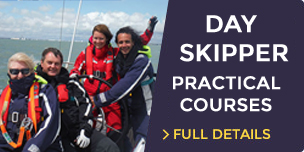
Sorry. No data so far.
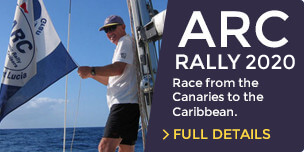
We love to hear from our customers and we are happy to call/email you to discuss your sailing needs.
Professional Yachtmaster Offshore
Advance your maritime career.
UKSA’s Professional Yachtmaster Offshore qualification is a bespoke, ALL-INCLUSIVE, comprehensive training package that will provide you with the skills you need to start your career in the maritime industry.
Our yachting career students will tell you that we provide unbeatable course content, training and facilities. You will also enjoy modern shorebased accommodation and freshly prepared daily meals while you are training with us.

About the Professional Yachtmaster course
This unique, premium qualification has been developed by Richard Baggett , one of the world’s top yachting instructors, and his highly experienced team at UKSA. The course is constantly monitored and adapted to ensure it remains relevant and always covers the current requirements for you to start working in the industry straight away. UKSA’s highly regarded Yachtmaster course opens up the most opportunities for employment within the maritime sector. These opportunities include, but are not limited to, working on superyachts, flotilla, tug boats, and employment in the Merchant Navy.
- 16 weeks training
- 70 days afloat
- 2,500 tidal miles covered
- Navigation training
- Radar training
- Basic engineering and safety training
- Careers guidance from our professional team
- Networking within the industry
Train at UKSA and experience our unbeatable value, world-class tuition and invaluable industry support and insight.
Please note: On occasion your sea phases may involve travelling outside of the UK. Therefore, to avoid restricting sailings we highly recommend that all Professional Yachtmaster Offshore students/Cadets are vaccinated against Covid-19 with the current maximum number of doses.
Please note this is not mandatory in order to complete the course but a recommendation.
Why train with UKSA?
When you train at UKSA you experience our world-class tuition and over 35 years of maritime industry insight. Also included in your course fee :
- Accommodation in our new Sea.Change building when shorebased for the duration of your course *
- Freshly prepared breakfast, lunch and dinner provided each day
- Purpose built classrooms and navigational training simulators all on one site
- One-to-one mentoring throughout the course from your instructors
- Dedicated careers course manager
- Career support both during and after your time at UKSA
- Networking on site throughout your time at UKSA
- Use of our swimming pool
- Access to our fully equipped gym
* subject to availability, we reserve the right to provide alternative accommodation on site
Register Interest
Qualifications gained
- RYA/MCA Yachtmaster Offshore (Sail) or RYA Yachtmaster Coastal (Sail)
- RYA Day Skipper Shorebased
- RYA Coastal Skipper / Yachtmaster Shorebased
- Personal Survival Techniques
- Fire Prevention and Fire Fighting
- Elementary First Aid
- Personal Safety and Social Responsibility
- MCA Proficiency in Designated Security Duties
- RYA Short Range Radio
- RYA Diesel Engine Maintenance
- RYA Powerboat Level 2
- RYA Professional Practices and Responsibilities
Commercial Endorsement
To work professionally within the maritime industry, you must be commercially endorsed. To commercially endorse your RYA Yachtmaster Certification at the end of your training, you will need to complete the RYA application for Commercial Endorsement Form, but you will gain all qualifications needed to commercially endorse your ticket during training.
Entry requirements
You must have an ENG1 seafarer medical fitness certificate to work at sea (click here for more details) and to enable you to apply for your RYA Commercial Endorsement (click here for more details). We recommend all students secure this before attending a course.
There are no other pre-requisites necessary to start the course. All that we ask is that you have enough sailing experience to know that you want a life at sea. If you don’t have any previous experience, we recommend you talk to our course advisors on +44 (0)1983 203038 or [email protected]
Funding available
We are here to support you
UKSA is committed to making training and qualifications accessible to those who have the desire to succeed in a yachting or watersports career. Funding could be available for this Yachtmaster course. To see a full list of all of our funding options visit our funding opportunities page or call us to talk about your options with our experienced course advisers on +44 (0)1983 203038 .
Funding Options
Frequently asked questions
How to get a commercial skipper’s license
The recommended route to obtaining a commercial skippers license is to do two training courses which consist of the Day Skipper Shorebased course and the Day Skipper Practical course. These are both included in the Professional Yachtmaster offshore course. The first covers the theory and knowledge-based training, such as meteorology, navigation, pilotage techniques and collision regulations; the second is putting this theory into practice in addition to developing the practical skippering skills of crew management, boat handling, practical pilotage and passage making.
What is a Yachtmaster?
A Yachtmaster is a person with a wealth of maritime knowledge who can cope with plain sailing and motor cruising and is also able to cope in demanding situations. Our Yachtmaster offshore qualification is recognised and respected all around the world and is the ultimate aim of many skippers, both professional and recreational.
Who are the RYA?
The RYA (Royal Yachting Association) are the national body for dinghy, yacht and motor cruising, all forms of sail racing, RIBs and sports boats, windsurfing and personal watercraft and a leading representative for inland waterways cruising.
View more Yachtmaster FAQs.
Dates and pricing
| Course | From | To | All-inc |
|---|---|---|---|
| Professional Yachtmaster Offshore | 10/10/2024 | 12/02/2025 | Full |
| Professional Yachtmaster Offshore | 31/10/2024 | 04/03/2025 | |
| Professional Yachtmaster Offshore | 22/11/2024 | 27/03/2025 | |
| Professional Yachtmaster Offshore | 17/01/2025 | 09/05/2025 |
Don’t just take our word for it
“The course is very professional, the instructors are experienced and highly motivated, and everyone is friendly and keen to help you succeed. The key reason I joined UKSA is to get my yachting ticket from an organisation that is well respected in the yachting industry. I also wanted to benefit from the careers support to be able to break into a career in professional yachting.”
Get free careers advice
- First name *
- Last name *
- How did you hear about UKSA? * –None– Absolutely Education magazine Below Deck Bestadventurejobs.co.uk Bluedome.co.uk Careers-in-sport.co.uk Cowes Harbour Handbook EscapeTheCity.org Event Facebook Falmouth Marine School General Knowledge Google Ads Independent School Parent Senior Instagram IOW College IwCollege.ac.uk Neilson Outdoor collateral Press Referral RYA Dinghy Show RYA magazine RYS Sailing Today with Y&Y Sea Cadets UK Solent Handbook & Directory Southampton Boat Show Superyacht Knowledge SuperYachtNews.com The Apprenticeship Guide The Price is Wight The SuperYacht Report Website Yotspot.com
- General notes
- Opt-in to receive course information and relevant offers
- Accept Privacy Policy and Terms and Conditions .
- Comments This field is for validation purposes and should be left unchanged.

#SeaChangeStories
I jumped at the chance to compete in the Golden Globe Race. This was everything that I had worked for and I had a chance to live it. For the past few years, I have been working flat out with a team of people to realise my ultimate goal of doing this race. It will be a challenge like nothing I have done before and I am throwing myself completely into it. Gregor McGuckin -Golden Globe Race/Professional Yachtmaster
You may also be interested in

Need help finding the right course for you?
Speak to an advisor on +44 (0)1983 203038 or email us
- Account icon Log in
- Basic Safety Training
- Refresher (Fire & PST)
- Elementary First Aid
- Fire Prevention & Fire-fighting
- Personal Survival Techniques
- Advanced Fire Fighting
- Advanced Fire Fighting Refresher
- Proficiency in Security Awareness
- Personal Safety & Social Responsibility
- Crowd Management / Crisis Management and Human Behaviour
- Powerboat Level 2
- PWC/Jet Ski License
- PWI/Jet Ski Instructor
- PWC + PWI Pack
- Pack PB2 & PWC
- Day Skipper
- Shorebased Yachtmaster Theory
- Yachtmaster Practical Preparation & Offshore Exam
- Yachtmaster Offshore Package
- Full Deckhand Pack
- Full Interior Pack
- Basic Deckhand Pack
- Basic Interior Pack
- Full Tender and Jet Ski Pack
- Tender Pack
- Jetski Pack
- Yacht Deckhand Training
- Yacht Steward/ess Training
- Basic Food & Beverage Services
- Basic Housekeeping & Laundry Services
- Basic Wine, Bartending & Mixology
- Food Safety Level 2
- ⚡Lithium-ion Battery Safety Awareness on Superyachts
- VHF Short Range Certificate
- RYA Professional Practice & Responsibilities
- RYA Essential Navigation and Seamanship
- RYA Online Coastal Skipper/Yachtmaster Theory
- RYA Online Day Skipper Theory
- STCW PDSD for Superyachts
- STCW PDSD for Cruise Ships
- STCW Proficiency as Ship Security Officer on Superyachts
- Useful Information
- Steward/ess
Yachtmaster Offshore: When, Why, and How
In a seafarer’s career, there comes the time when Yachtmaster ticket becomes either a necessity, or the next logical step in professional development. No matter what the reason for the course is, Yachtmaster Offshore requires a thorough preparation and planning as well as some prior knowledge and experience.
- When am I ready to take the course?
The candidate’s eligibility for Yachtmaster Offshore program is defined by a number of requirements. First and foremost, the logged sea time must show a minimum of 2500 nautical miles, about half of which should be in tidal waters. There is a huge debate as to what tidal waters are, and the RYA leaves it to the Yachtmaster candidate to decide whether the passage they undertook happened in a tidal area. The definition offered by the RYA is as follows:
An area is deemed tidal if published stream, current or tidal range data is available, the influence of which is significant enough to require the effects to be taken into account to plan and execute a safe and efficient passage .
But even if the decision to call experience tidal is the candidate’s, the RYA wisely warns that the final judgement will be made by the examiner and recommends to list only those miles that can be backed up with evidence. The qualifying sea time should be gained on motor vessels if the candidate applies for Yachtmaster Offshore Motor license. Sail miles do not count.
The RYA also sets a requirement as to the number of qualifying passages. As defined by the Association, ‘a passage is a non-stop voyage from a departure port / safe haven to a destination port / safe haven ’. For the Yachtmaster Offshore , there must be a minimum of 5 passages over 60 nm each; 2 of those passages should be overnight and 2 when the candidate acted as a skipper. The skipper, as understood by the RYA , is a person nominated and responsible for the planning and execution of a passage including vessel and watch management . It’s important that throughout the 60-mile passage there occurs no change of skippers; otherwise, the passage cannot be deemed as qualifying.
Proper understanding of the skipper’s role is vital for ticking the box of another requirement – 5 days on board acting as a skipper. A day in this case is a period of 8 consecutive hours, and the majority of them should be at sea . In every 24 hours, Yachtmaster candidate can have only one qualifying day onboard.
Last but not least, the RYA’s Yachtmaster Offshore exam pre-requisites put some restrictions as to the tonnage and length: days on board and miles should be gained on vessels up to 500 gt and less than 24 meters LOA.
- When is the best time to take the RYA Yachtmaster Offshore course?
The full program – RYA Yachtmaster Offshore theory and RYA Yachtmaster Practical – takes 10 days to complete; the exam is usually scheduled right after, and candidates need to allow 2 days for it. With the sea, winds, and weather being unpredictable, to the candidates coming from abroad we advise to add an extra day before taking flights back home. Thus, the course is quite a commitment, and most seafarers take it during low Med season. Our Yachtmaster Offshore course is scheduled every month from December throughout April to give options to potential candidates.
- Why take the RYA Yachtmaster Offshore?
Yachtmaster is not for beginners. Commercially endorsed Yachtmaster Offshore Certificate of Competence entitles its holder to master a yacht of up to 200 gt, and that is a big responsibility. That said, one of the reasons to get Yachtmaster is to advance the qualifications from entry to higher level including MCA Officer of the Watch (OOW) or Chief Mate, for which Yachtmaster Offshore CoC is among the required documents. Yachtmaster Offshore Shore-based (theory) certificate is another pre-requisite to apply for the OOW, and it has to be sent along with STCW and other records as a part of the Notice of Eligibility.
In a scheme of RYA training , Yachtmaster Offshore is preceded by RYA Day Skipper and Coastal Skipper, which allow to navigate 20 and 60 nautical miles offshore accordingly. With Yachtmaster Offshore qualifications, it is possible to skipper a cruising yacht up to 150 miles from harbour, so recreational boaters can have larger areas to explore and longer distances to cover.
- How to apply for Yachtmaster Offshore Program?
If you believe you are ready and meet the pre-requisites mentioned above and outlined on our website , your first step is to get in touch with us by email, phone, or through contact form . Once we receive your enquiry, we will email to you Sea Time Summary and Self-Evaluation forms to fill out, which we will then forward to our instructor to confirm your eligibility. If you are eligible for the course, we will proceed with course booking and securing your place on the training.
Some important things to remember: the candidates for the training should hold a valid Elementary First Aid certificate . For the STCW EFA , it should be issued within the last 5 years, for the RYA First Aid - within the last 3 years. VHF Marine Radio certificate can be offered as a part of Yachtmaster Offshore package , but if you already hold the certificate, we can offer a 100 euros reduction.
Our next Yachtmaster Offshore session starts on the 6 th of December. Click here for more dates.
More questions about Yachtmaster? Let us know!
Leave a comment
Comments must be approved before appearing
* Required fields
Subscribe to our newsletter & be the first to know of training dates & offers
Checkmark icon Added to your cart:
Register today and get £50 off
Enter voucher code HOME STUDY in the booking form
Coastal / Offshore
RYA Yachtmaster
Online Theory Course
A challenging course which stretches you but backed up with excellent coaching and instructor support.

Advanced training for more experienced skippers to navigate safely on coastal and offshore passages
The RYA Yachtmaster online theory course takes your theory knowledge to the standard required for the Yachtmaster Coastal and Yachtmaster Offshore practical exams.
This course advances your skills as a skipper of a yacht or motor boat, with an emphasis on navigation and passage planning for more complex coastal or offshore passages by day and night
Includes some time for the revision of Day Skipper subjects then moves on to cover a greater depth of knowledge and more advanced skills in navigation, pilotage & meteorology.
Successfully gaining your RYA Yachtmaster theory certificate will enable you to confidently work towards your Yachtmaster Coastal or Yachtmaster Offshore practical qualification.
- Assumed knowledge To Day Skipper theory level.
- Minimum duration A minimum of 40 hours of course study time is specified by the RYA, plus time for exercises and exams.
- Ability after course Theory knowledge to skipper a vessel on coastal and offshore passages by day and night.
Simply click below to try a free lesson.
Pilotage for RYA Yachtmaster Offshore
- Charts & Other Publications
- Definition of Position, Time, Speed & Distance
- The Compass (including allowance for deviation and swinging the compass)
- Tidal Theory
- Tidal Heights (including secondary ports)
- Tidal Streams (including interpolation of drift)
- Estimated Position
- Course to Steer
- Visual Aids to Navigation
- Electronic Aids to Navigation
- Passage Planning
- Meteorology (including interpreting surface pressure charts)
- The Collision Regulations
- Safety & Protection of The Environment
Unlimited support from our dedicated RYA Instructors - 365 days a year via email, phone or Skype/Zoom.
14-day unconditional money-back guarantee.
17 fully-narrated online lessons including animations, videos and realistic 3D graphics.
Embedded quizzes with instant feedback in each lesson.
14 self-assessment exercises with fully worked answers.
Over 50 downloadable or linked resources.
Videos covering: updating paper charts, engine checks, dismasting, jury rig, flood control, firefighting, gas explosions, capsize, lifejacket checks, how to put on a lifejacket and what happens when it inflates, man-overboard recovery, launching and boarding a liferaft.
Free Radar course.
RYA Student Pack (including 2 training charts, training almanac & course handbook).
Mock exams to prepare you for the real thing and give you the confidence to pass.
3 final online exams with detailed instructor feedback and free repeat attempts if requried.
RYA Yachtmaster Shorebased Theory Course Completion Certificate.
12 months access to study with instructor support and exams - you can extend this if you want.
Lifetime access to training materials once you’ve completed the course.
Optional Extras
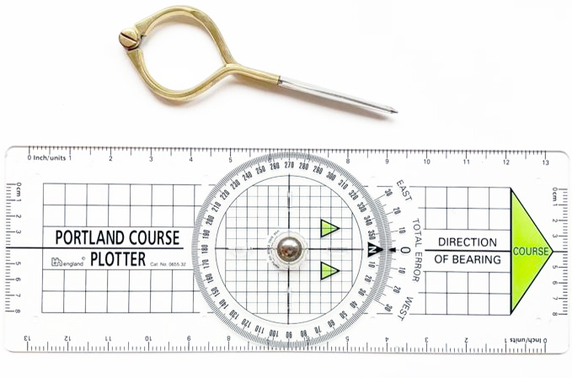
Plotter and divider You’ll need a course plotter and chart-dividers to complete the chartwork exercises - if you don’t already have these you can purchase a top quality set from us for £28 when you place your order.

Delivery UK delivery is free. European delivery is £20, outside Europe delivery is £40.
You can start studying immediately as many of the lessons don’t rely on the printed support materials.
This course is accessed online with no additional software required.
Lessons are accompanied by optional professional narration, and notes.
They are intuitive and easy to follow, whilst more complex subjects are accompanied by interactive animations and graphics to help you gain a full knowledge of each subject in the course syllabus.
Detailed step-by-step workings for navigational or tidal calculations make it easy for you to follow along as we show you how to plot positions, make tidal height and stream calculations, etc
You can go over these again and again, and test your knowledge with regular quizzes throughout each lesson.
At the end of each lesson there is an excercise containg similar questions to the exam, with detailed and illustrated answers sent to you immediately to confirm your progress and fully prepare you for your mock and final exams.
You can repeat entire lessons and excercises as often as you wish until you are confident that you fully understand each subject.
When you have completed the course you can request mock and then final exams.
These are assessed by our RYA Instructors and detailed feedback is provided in any areas that may require further study within the course.
If you pass the final exams you will be awarded the RYA/MCA Coastal Skipper & Yachtmaster Offshore Shorebased Course Certificate , which will be posted to you.
Additional free resits, with suitable Instructor guidance, are available if required.
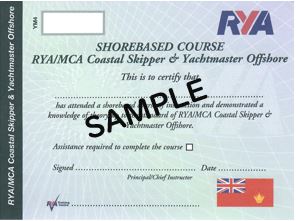
Call us for advice on 0238 218 2604
Course reviews.
Laura Anderson
Very enjoyable and informative
Impressively prompt and thorough feedback on all queries, tests, mock and real exams. Very high standards and you feel you have earned the Yachtmaster certificate.
Ciaran McIntyre
Comprehensive and well delivered
Excellent course materials and high quality delivery. Very responsive and excellent instructor feedback
Andrew Harvey
Excellent Yachtmaster theory course - I’d definitely recommend it.
Does what it says on the tin and more. I was impressed how well the course managed to tackle teaching relatively complex skills in a logical and easy to understand way.
Oliver Fleming
Well put together course.
I found the Yachtmaster theory course to be really well structured and covered all of the syllabus in great detail. I was impressed by how well the course managed to tackle teaching relatively complex skills in a logical and easy to understand way.

Combined - RYA Day Skipper & Yachtmaster to fast track your theory learning
Bateaux.com
Yachtmaster Offshore : Comment passer cette qualification de skipper ?
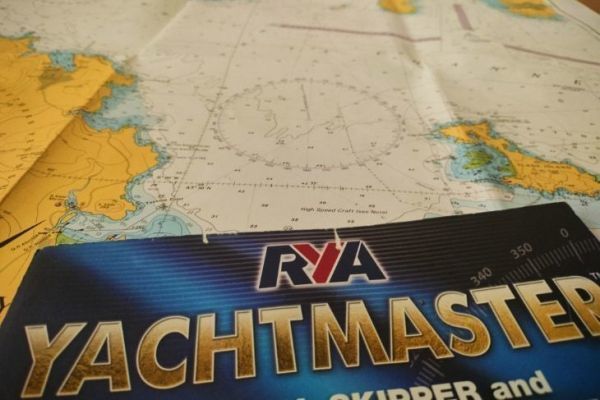
Le Yachtmaster Offshore, qualification britannique délivrée par la Royal Yachting Association ou RYA, est un diplôme très recherché pour travailler comme skipper dans le monde. Découvrez comment l'obtenir, y compris hors du Royaume-Uni, et ce qu'il vous apportera.
Écoutez cet article
Les différents types de Yachtmaster
Le Royal Yachting Association ou RYA, équivalent britannique de la FFVoile , délivre des diplômes baptisés Yachmaster, validant une compétence en tant que chef de bord, nécessaires pour travailler comme skipper. A l'issue d'une formation , il est possible de passer l'examen du Yachtmaster, qui comporte une partie théorique et une partie pratique. Ce diplôme est reconnu dans de nombreux pays du globe. Il ne l'est par contre pas en France.
Il existe trois degrés de Yachtmaster : Coastal, Offshore et Ocean.
- Le premier niveau, Coastal, vient valider une compétence en tant que skipper en côtier. Si cette qualification permet de travailler en tant que skipper, elle n'est souvent pas suffisante auprès des employeurs de charter.
- Le deuxième niveau, l'Offshore est souvent celui-ci dont on parle quand on désigne "le Yachtmaster". Ce diplôme vient valider une compétence de skipper en côtier et semi-hauturier, et permet de travailler en tant que skipper jusqu'à 150 milles nautiques d'un abri.
- Le troisième niveau intitulé Ocean est plus rarement demandé. Il permet de travailler en tant que skipper sans limites géographiques, et vient confirmer une compétence de chef de bord en hauturier et une maîtrise de la navigation astronomique. Il n'est pas possible de passer la qualification Ocean sans avoir au préalable un Yachtmaster Offshore.
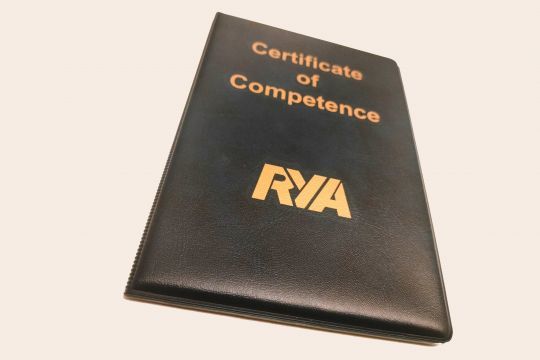
Les prérequis du Yachtmaster Offshore
Pour pouvoir se présenter à l'examen du Offshore, il existe des prérequis administratifs. Tout candidat doit être en mesure de présenter :
- Une attestation de premiers secours : le PSC1 ou le PSMer sont acceptés.
- Une attestation de radiophonie : là encore, le Certificat de Radiophonie Restreint ou CRR français est accepté.
Par ailleurs, le candidat doit être en mesure de prouver qu'il a l'expérience nécessaire, à savoir qu'il a effectué :
- 50 jours en mer, dont 5 en tant que skipper
- 2 500 milles nautiques, comprenant 5 traversées d'au moins 60 milles, dont deux doivent avoir été effectuées pendant la nuit, et deux en tant que skipper.
Une photocopie des livres de bord sera donc précieuse pour prouver ces passages, en plus des deux diplômes à présenter, ce qui permettra au candidat de passer l'examen.
Une formation plus ou moins longue
Le Yachtmaster Offshore se déroule en deux temps : la formation , puis l'examen. La formation se déroule dans des centres agréés RYA au Royaume-Uni ou à l'étranger. En France, il en existe plusieurs, dont les plus connus sont Blue Sailing, Sailing School Britanny ou encore Sail-Master-Training. Selon le niveau d'entrée, il est possible d'effectuer une session complète de formation sur plusieurs semaines, ou de faire une préparation d'une ou deux semaines avant l'examen si l'on a déjà les connaissances et les compétences. Ces semaines permettent notamment de se mettre à niveau en anglais, tout l'examen étant bien sûr dans la langue de Shakespeare !
La préparation permet de passer en revue les différents socles de compétences nécessaires pour passer l'examen. A l'issue de la préparation, un examinateur britannique vient pendant un ou deux jours évaluer les candidats, au rythme d'évaluations théoriques et pratiques.
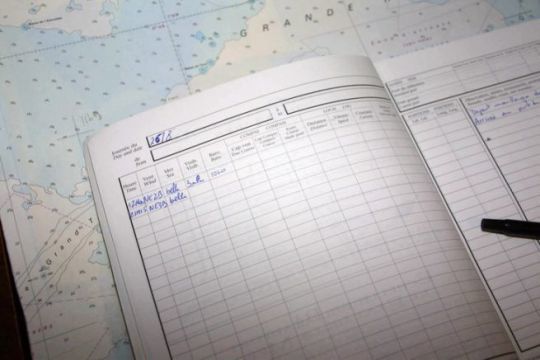
L'examen du Yachtmaster Offshore
Concernant la pratique, il faut maîtriser les techniques de navigation côtières sans GPS : relèvements trois points, alignements, lignes de sonde, transfert d' amer , estime. En outre, il faut être capable de gérer son équipage, la sécurité à bord, mais aussi les manœuvres de port et l'amarrage. L'accent n'est pas vraiment mis sur les manœuvres à la voile, mais sur la capacité à naviguer en sécurité sans GPS ou avec GPS , en prenant en compte tous les paramètres nécessaires au déroulement serein d'une sortie en mer.
Au niveau théorique, l'examinateur pose des questions sur des sujets divers sur lesquels une bonne connaissance est attendue : météo globale et phénomènes locaux, le RIPAM , Réglementation International de Prévention des Abordages en Mer, dont la connaissance des règles précises est très importante, calcul de marée à l'anglaise, mais aussi l'art du Passage Planning. Le Passage Planning est un document écrit regroupant toute la préparation faite en amont d'une traversée ou d'un voyage d'un port à un autre. Chaque candidat doit donc préparer un passage planning d'une traversée hypothétique, typiquement une traversée transmanche contre le vent. Elle constitue une bonne synthèse pour l'examinateur de toutes les connaissances à vérifier, puisqu'elle va permettre de voir l'usage des ouvrages nautiques, les calculs de marées, les prévisions météo, la sécurité à bord…
A l'issue de l'examen, l'examinateur décide de valider ou non l'attribution à chaque candidat. Il l'annonce à chacun, et enverra les papiers lui-même à la RYA, qui enverra le diplôme à tous les candidats qui auront réussi l'examen.
Désormais titulaire du Yachtmaster Offshore, pour pouvoir l'utiliser en travaillant, un candidat devra cependant passer le Commercial Endorsement, la licence d'exploitation commerciale, qui nécessite des certifications de sécurité supplémentaires.
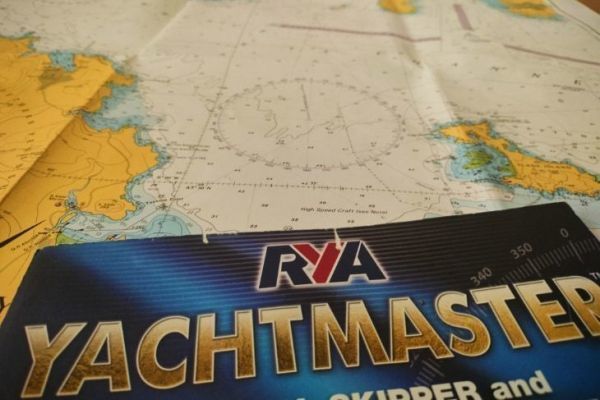

Chieftain Training
RYA & STCW Courses – Sail, Power, Super-Yacht & Workboat
What is an Ocean Yachtmaster
What is an ocean yachtmaster and how to become an ocean yachtmaster.
The RYA/MCA Ocean Yachtmaster Certificate of Competence (CoC) is the highest level certificate in the RYA scheme. It can be used by blue water leisure sailors and by commercial skippers and crew. Under the MCA Codes of practice the Ocean Yachtmaster Certificate of Competence holder, (with relevant commercial endorsement etc.) can skipper a vessel;
- Up to 200 tonnes
- Carrying up to 12 passengers
- Anywhere globally (i.e. beyond the 150 miles from a safe haven limit imposed upon a Yachtmaster Offshore ).
Furthermore the Yachtmaster Ocean CoC Exam is required for the Chief Officer 3000 Certificate of Competence (for yachts over 200 tonne).
There are 5 stepping stones to becoming an Ocean Yachtmaster CoC holder. Steps 1-4 can be taken in any order although the order presented below is the most logical. Step 5 can only be completed once the first 4 steps have been completed.
- Yachtmaster Offshore Certificate of Competence
RYA Ocean Yachtmaster Shorebased Course
Ocean qualifying passage.
- Sights and Compass Check by sextant at sea
RYA/MCA Ocean Yachtmaster Certificate of Competence Oral Exam
It is technically possible to take the Ocean Yachtmaster CoC Oral exam without having previously completed the RYA Ocean Shorebased Course but not advised as it involves an additional written exam and you would require all of the relevant knowledge taught on the course. Further information is detailed the relevant 5 steps below;

Becoming a Yachtmaster Offshore Certificate of Competence Holder
While you can proceed towards the RYA Ocean shorebased course and the Ocean practical steps (qualifying passage and sights) you can not proceed to the Oral exam without first holding the Yachtmaster Offshore Certificate of Competence .
This is a 40-hour theory course. It can be taken;
- Over 5 consecutive days face to face in the classroom
- Over 13 evenings face to face night school in the classroom
- Over 5.5 days face to face using zoom
- Online in your own time.
Whichever format you choose the course culminates in a written paper.
The course concentrates on astro navigation, i.e using a sextant and the heavenly bodies (sun, moon, stars and planets) to fix your position. The course also devotes time to ocean voyage planning and worldwide meteorology.
Full details can be found at Ocean Yachtmaster Shorebased Course

While you don’t strictly need to be a Yachtmaster Offshore before taking the Ocean Yachtmaster Shorebased Course , the following knowledge is assumed before the Ocean Shorebased course starts;
- Use of plotting instruments (plotter, dividers etc.)
- Latitude and longitude, knots and nautical miles
- Variation and deviation
- Application of UT, DST
- 2/3 Point fixes and angles of cut
- Dead Reckoning / EP (and ideally the Running Fix)
- GPS and other electronic nav aids
- Coastal/offshore voyage planning
- Sources of forecast information
- Synoptic charts
- Low pressure systems
- Coastal communications /distress comms. (Navtex, VHF, EPIRBs and SARTs)
Is the Ocean Shorebased Written Exam Invigilated?
If you take a face to face Ocean Yachtmaster Shorebased Course then the written paper is invigilated and marked by your Instructor.
If you choose to take the Online or Webinar RYA Ocean Yachtmaster Shorebased Course then face to face invigilation may be required (see table below).
| I am taking the course for fun/ and/or for my own interest | Invigilation not required |
| I intend to use the knowledge for leisure sailing | Invigilation not required |
| I intend to use this course as a pre requisite for the RYA/MCA Ocean Yachtmaster Certificate of Competence Exam | required by an RYA Instructor, otherwise you will be required to complete a written exam at the time of your Ocean Yachtmaster Certificate of Competence Oral Exam |
| I intend to use this certificate as a pre requisite for the | required by an RYA Instructor |
| I intend to become a | required by an RYA Instructor |
What qualifies as a RYA Yachtmaster Ocean Qualifying Passage?
An Ocean Qualifying Passage must have been taken in the last 10 years. Sea time prior to this date does not qualify. The passage must meet the following requirements
Ocean Candidate’s Role On Board
For your qualifying passage you should be either the skipper or mate in sole charge of a watch. You must have been fully involved in the planning of the passage, including selection of the route, the navigational plan, checking the material condition of the vessel and her equipment, storing with spare gear, water and victuals and organising the watch-keeping routine.
If the skipper changes role at any point during the passage, then neither skipper can use the passage as a qualifying passage.
It is our opinion that it is impossible for multiple Ocean Yachtmaster candidates to use the same passage as their qualifying passage as you can not all fit the definitions above. More than two candidates would be highly unlikely more than three impossible.
The passage has several minimum requirements
- Departure and arrival ports must be more than 600 miles apart by the shortest navigable route
- Minimum non-stop distance of 600 miles must have been run by the log
- At least 200 miles of that passage must have been more 50 miles from land (or charted objects capable of being used for navigation/position fixing, such as an offshore oil rig)
- The vessel must have been at sea continuously for at least 96 hours
Passages such as recognised races which may not comply exactly with these requirements may be submitted to the RYA for consideration before the voyage.
Examples of Ocean qualifying passages (non stop passages)
- Trans-Atlantic ARC Rally (Canary Islands to St. Lucia/Caribbean)
- Between Azores and anywhere in mainland Europe/UK or the Canary Islands
- Between Bermuda and any of; Bahamas, Caribbean, Canada or most of USA (parts of North Carolina fall below the requirements)
- Between Bermuda and the Azores or Europe
- Solent/UK to Cascais/Portugal,Algarve, Southern Spain or Gibraltar (assuming you follow the rum line or stay offshore when crossing Biscay)
- Trans Pacific Passage (excluding passages between Alaska and Russia, on or close to the Bering Sea)
- Atlantic Germany (Elbe) to Scotland, where the 200 mile run is impossible due to oil rigs)
- Gibraltar to Northern Lanzarote where the mileage falls slightly below 600
- RORC Fastnet Race which does not follow the shortest navigable route or have the 200 mile run
- Northern Spain to Majorca, although well over 600 miles, very little of the passage is over 50 miles from land
If you still are not sure about whether a passage qualifies, then check out the RYA’s definition of a qualifying passage .
Vessel used for Ocean Qualifying Passage
The yacht (or vessel) must be;
- Minimum size 7m, LWL
- Maximum size 500 tonnes (If the vessel is over 24m LOA then the candidate would need to hold an OOW 3000 Certificate of Competence to act as Officer of the Watch on the passage).

Sights and Compass Check by Sextant at Sea
You are required to provide your Ocean Examiner with a minimum of’
- Sun Run Mer Pass (or sun run sun, sun run planet etc.)
- Compass check carried out using the bearing of the sun, moon, a star or planet
Sights are usually taken on the qualifying passage however in some circumstances (such as lots of cloud cover) this is not possible. If sights have been taken on another passage then the following requirement apply to this passage.
- The vessel must of been out of sight of land and charted objects when the sights are taken/used.
- The vessel must be on a passage by the shortest navigable route. You can not therefore simply head offshore take sights and return to departure port.
We always advise candidates to present the examiner with more than the minimum required sights. If you present the examiner with additional sights and your preferred set suffers from errors you still stand a chance of passing the exam.
Prior to the exam you will need to provide the examiner with;
- A narrative account of the planning and execution of the qualifying passage providing all relevant details.
- Navigational records, completed on board a yacht on passage, out of sight of land showing that the candidate has navigated the yacht without the use of electronic navigational aids. The records must include as a minimum, planning, reduction and plotting of a sun run meridian altitude sight and a compass check carried out using the bearing of the sun, moon, a star or planet.
During the oral exam you will be required to answer questions on all aspects of ocean passage making in a yacht, including passage planning, navigation, worldwide meteorology, crew management and yacht preparation, maintenance and repairs.
If you already hold the RYA Ocean Shorebased Course Certificate , the exam typically takes 1.5 hours although examiners can continue questioning considerably longer. If you do not hold the Ocean Shorebased certificate then your exam will take considerably longer as you will also have to take a written test.
Does the Ocean Yachtmaster Qualifying Passage have to be on the same type of vessel as I took my Yachtmaster Offshore Exam on (i.e. power or sail)?
Most candidates will qualify in the same kind of vessel as they passed their Offshore exam, however it is possible to qualify as a Yachtmaster Offshore (power) and then comlpete the Yachtmaster Ocean requirements on a sail vessel (or vice versa).

I hold a OOW (Yacht 3000gt) CoC but not a Yachtmaster Offshore CoC
If you passed the Yachtmaster Coastal Certificate of Competence Exam instead of the Yachtmaster Offshore Certificate of Competence Exam as your entry requirement into the OOW 3000 CoC then you will not be eligible to hold the Yachtmaster Ocean Certificate of Competence. On passing the oral exam you will receive a pass confirmation certificate.

How do I commercially endorse the Yachtmaster Ocean Certificate of Competence?
Those working under the MCA Codes of practice will require a commercial endorsement. Information can be found at RYA Commercial Endorsements . If you already hold a commercial endorsement on your Yachtmaster Offshore CoC then it is simply transferred across.
Do I require any other certificates to operate commercially as an Ocean Yachtmaster?
To operate a coded sailing yacht in Category 1 or 0 waters (i.e. Over 60 miles from a safe haven) you will additionally require a RYA Diesel Certificate .
To operate the mandatory GMDSS radio equipment on a commercial vessel in Sea Area A2 (more than about 35 miles offshore) you require either a Long Range Certificate (LRC) or STCW General Operator Certificate (GOC) .
To skipper a coded vessel in Category 1 or 0 waters (i.e. Over 60 miles from a safe haven) you will additionally need to hold STCW Proficiency in Medical First Aid and Proficiency in Medical Care , unless there is a current qualified nurse practitioner (or higher) on board.
If working aboard a vessel in Category 1 or 0 waters (i.e. Over 60 miles from a safe haven) you will need a ENG1 Medical certificate. The alternatives which are suitable further inshore such as ML5 Medical Certificate are not valid in category 1 and 0 waters.
Share this:
- Certificates of Competence
RYA Yachtmaster Ocean Exam
Full details of the exam syllabus and requirements are shown in the RYA Yachtmaster Scheme Syllabus and Logbook (G158), which is available from the RYA webshop.
The exam consists of an oral and written test.
The candidate must provide the examiner with the following information 48 hours prior to the exam:
- A narrative account of the planning and execution of the qualifying passage providing all relevant details.
- Navigational records, completed on board a yacht on passage, out of sight of land showing that the candidate has navigated the yacht without the use of electronic navigational aids. The records must include as a minimum, planning, reduction and plotting of a sun run meridian altitude sight and a compass check carried out using the bearing of the sun, moon, a star or planet.
During the oral test the candidate will be required to answer questions on all aspects of ocean passage making in a yacht, including passage planning, navigation, worldwide meteorology, crew management and yacht preparation, maintenance and repairs.
The written exam will include questions on sights and sight reduction and worldwide meteorology.
Candidates who hold the RYA/MCA Yachtmaster Ocean Shorebased Course Completion Certificate (final exam must have been invigilated at an RYA RTC), or a MCA issued full STCW Certificate of Competence as a Deck Officer (Unlimited) will be exempt from the written examination.
Before you book your exam please check that you:
- have completed the required mileage and experience as skipper
- have read the syllabus in RYA Logbook (G158)
- have read and comply with the pre-requisites above.
If you need your Certificate of Competence in order to work on board a commercial craft subject the MCA's codes of practice, you will need to get it commercially endorsed - see 'Related articles'.
Please note: Only those who hold the RYA Yachtmaster Offshore Certificate of Competence are eligible to receive the RYA Yachtmaster Ocean Certificate of Competence on passing the oral exam. Those holding OOW (Yacht 3000gt) will receive a pass confirmation certificate.
RYA Yachtmaster Ocean exam pre-requisites
| Have completed a qualifying passage on board a sailing or motor yacht up to 500gt which meets the following criteria: The minimum qualifying passage must have been accrued within 10 years of the examination date. Candidates must hold OOW (Yacht 3000gt) to claim qualifying passages on vessels greater than 24m LOA. Contact if your passage is on a vessel greater than 500gt.
| |
| Oral and written assessment of sights take at sea. | |
| Hold either: | |
| Approximately 1.5 hours |

RYA Yachtmaster Offshore Motor – Everything You Need to Know
| Time | 8 to 48 hour exam (dependant on the number of people) after a potential prep course of up to 5 days |
| Prerequisites | 50 days spent at sea 2500nm cruised, with at least 50% in tidal waters 5 days as skipper 5 60nm passages, 2 as skipper |
| Min. Age | 18 |
| Exam | 8 hours to 2 days on the water |
| Aim | To work commercially on a sailing vessel under 24m in length within 150nm of a harbour. |
The RYA Yachtmaster Offshore Motor ticket is considered the most useful and credible of all motor cruising qualifications. Administered on behalf of the UK Maritime and Coastgaurd Agency by the RYA the qualification is accepted as a worldwide standard. To gain an RYA Yachtmaster Offshore Motor qualification you must sit a practical exam.
What Does the RYA Yachtmaster Offshore Motor Allow You to Do?
Gaining an RYA Yachtmaster Offshore Motor will allow you to work commercially on motor vessels not exceeding 200GT.
The RYA Yachtmaster Offshore Motor exam certifies that you are competent to skipper a motor yacht on any passage that is not more than 150nm from a harbour.
How Can You Sit an RYA Yachtmaster Offshore Motor Exam?
The exam can be organised via the RYA to be done on your own vessel or via an RYA training centre, to be done on an RYA training vessel. It should be noted, that to complete the exam on your own vessel, your vessel must be up to an appropriate safety standard.
Most RYA training centres offering the RYA Cruising Scheme offer some form of pre exam preparation or coaching for those looking to take an RYA Yachtmaster Offshore Motor exam.
These courses are often referred to as ‘RYA Yachtmaster Prep’ courses. This is unique within the RYA training framework in that it does not have a fixed course syllabus, length or course completion certificate.
Who Can Do an RYA Yachtmaster Offshore Motor Exam?
The RYA Yachtmaster Offshore Motor exam is open to anyone who meets the minimum criteria, with all experience within the last 10 years.
- 18 years of age or older
- 50 days spent at sea
- 2500nm cruised, with at least 50% in tidal waters
- 5 days as skipper
- 5 passages of over 60nm, with at least 2 as skipper
If you have skippering experience but not the required days or passages, then the RYA Yachtmaster Coastal Motor might be for you.
If you have the miles, but not the skippering experience, then again, the RYA Yachtmaster Coastal Motor might be for you.
Additionally, exam candidates must also hold a relevant GMDSS VHF certification and an RYA First Aid certificate or recognised equivalent.
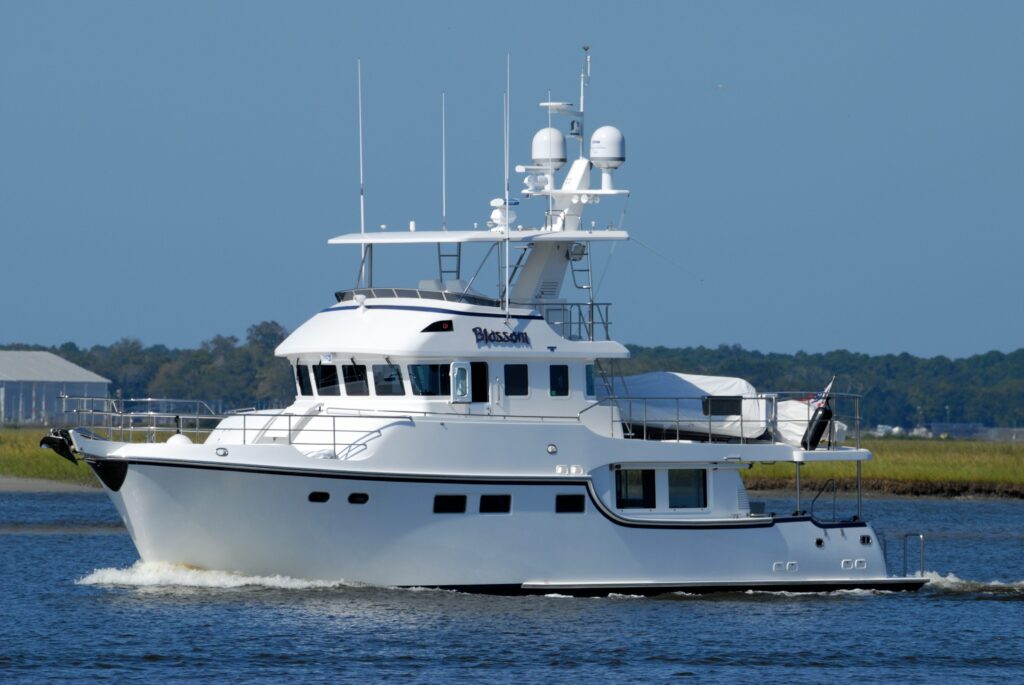
Can You Go Straight to the RYA Yachtmaster Offshore Motor Course and Exam?
You can indeed jump straight into the RYA Cruising Scheme at this stage, however, it is imperative that you understand the levels that are required of you, both in your knowledge and practical skills.
It is suggested that as a minimum you have completed (and passed) the RYA Coastal Skipper and Yachtmaster Theory course as the knowledge in here is both required for you to be at the level required, but will be formally tested during your RYA Yachtmaster Offshore Motor exam, both orally and in practical applications.
What Do You Need to Know before Attending an RYA Yachtmaster Offshore Motor Course and Exam?
You, of course, need to be a suitably experienced skipper and this involves meeting the prerequisites mentioned above to be eligible. You should be able to handle your vessel competently in close quarters and at sea. You should be comfortable applying this in various day and night time passages.
As mentioned, it is strongly recommended to have completed the RYA Coastal and Yachtmaster Theory as the depth of knowledge gained from this shore based course will be tested throughout your exam.
How Long Does an RYA Yachtmaster Offshore Motor Prep Course and Exam Take?
The exam can take anything from 8 hours to 2 days depending on how many candidates are being examined on one vessel at a time. Up to 4 candidates can sit the exam at once and this would last for a maximum of 48 hours if so.
An RYA Yachtmaster Prep course is generally four and a half days long and is usually directly followed by the practical exam.
Is There a Set Syllabus for the Prep Course?
No, this is the one time that while there is a recognised ‘course’, there is no syllabus. It is up to the experienced instructor on the RYA Yachtmaster Offshore Motor Prep course to tailor the learnings to your needs. This is more about refining your skills rather than teaching new ones.
You should be honest with yourself and your instructor in order for learnings throughout the week to be tailored to improve yourself on any weak areas that you may have.
What Should I Expect from a Prep Course?
These courses run as a standalone course and while there may be students on another course, generally everyone onboard is a candidate for an RYA Yachtmaster Exam. The courses should however be run with no more than 4 students on board.
The content will depend on the needs of all students and is aimed at fine-tuning existing skills rather than teaching new ones. This will involve a lot of night time cruising and navigation, carrying out challenging boat handling while using theory knowledge and ensuring general skippering skills are up to scratch.
There is a basic syllabus that is used to help shape the exam content, but in reality, you can be tested on anything from the RYA cruising scheme within the exam.
Before choosing the RYA Yachtmaster Offshore Motor Prep course you need to be honest with yourself and your own abilities. While on the course you need to take on the advice and guidance given by the instructor on what areas need work. If you speak to your instructor before the course, they can tailor the instruction to your needs.
What Should I Expect on an RYA Yachtmaster Offshore Motor Exam?
On the exam, you will be given the opportunity to demonstrate your knowledge and competence. You will be expected to take full responsibility of your vessel and crew. The examiner will be looking for you to demonstrate competence and show your broad range of experience.
The exam will be an intensive experience and even when you are not the designated skipper, you will still be asked questions and observed and examined as a participant of the crew.
During the exam you will be asked to complete various tasks, ranging from leaving the dock, skippering a short passage, casualty recovery, night pilotage and even blind navigation. Additionally, you will be tested on theoretical aspects such as how to deal with an engine failure, knowledge of your vessel’s stability, meteorology and IRPCS.
As a potential RYA Yachtmaster Offshore Motor, these tasks are ones that should now be second nature to you and should take minimal time to plan while the theoretical knowledge should be able to roll off your tongue.
What Is the RYA Yachtmaster Offshore Motor Exam Syllabus?
The following topics make up the basis for the RYA Yachtmaster Offshore Motor exam syllabus. IRPCS, safety, boat handling, seamanship, responsibility as skipper, navigation, meteorology and signals.
But, as mentioned above, anything from the whole RYA cruising syllabus scheme can be tested.
What Is the Cost of an RYA Yachtmaster Offshore Motor Course and Exam?
As ever, many schools differ in price. We would recommend that you take a look around at the various options and find what suits your needs the best. Cheapest is not often better.
This can range from knowing if you will have to share a cabin while onboard to whether food and berthing charges are included to how many other students you will be sharing your week with.
The exam fee is usually not included, which is currently £231.
Where Should I Do My RYA Yachtmaster Offshore Motor?
As always there are many thoughts and pros on cons on this, and as a potential RYA Yachtmaster Offshore Motor you should consider yourself experienced enough to sit the exam anywhere. However, if you choose to sit the exam in an area that you are familiar with then you will take a little bit of the stress out of learning a new area and start with a small advantage of having that all important local knowledge at your disposal.
What Happens If I Struggle on thePrep Course?
Your instructor should be able to update you on your ability levels throughout the course. They will be highly experienced and it is suggested that you listen to their advice given.
If you are learning something for the first time you should consider if you are ready for the exam. Talk to your instructor and they will be able to guide you on if you are ready for the exam, if they would advise further training or if they recommend that you aim for the RYA Yachtmaster Coastal Motor exam instead.
What Is the Pass Mark for the Exam?
There is no pass mark as such and the examiner will be looking to see that you are a competent and complete skipper, capable of looking after both your vessel and crew in a safe manner.
Every exam is different and no examiner will be setting out to fail any candidates, but they must ensure and check that each candidate is able to demonstrate their ability, knowledge and skills in a safe and timely manner.
If you were to fail to reach the levels of an RYA Yachtmaster Offshore Motor certificate of competence then the examiner will give you a thorough debrief complete with action points to work on before you have another attempt at the exam.
What Comes After RYA Yachtmaster Offshore Motor?
After completion of the exam, you will have gained the highly sought after RYA Yachtmaster Offshore Motor certificate of competence and you can get this commercially endorsed by adding a sea survival certification, a personal medical and a PPR course, all of which, along with your GMDSS VHF and First Aid should be sent off to the RYA for certification upgrade. This will now allow the holder to skipper a vessel commercially, so long as it is less than 200 gross tonnes, up to 150nm from a harbour.
The next step is of course to get out on the water and to keep learning, keep gaining experience and keep improving on the skills and knowledge learned so far. No skipper is the finished article and we should all keep seeking to improve.
Within the RYA cruising scheme, there are a couple more steps that are possible. This is to progress and upgrade your RYA Yachtmaster Offshore Motor certificate of competence to an RYA Yachtmaster Ocean Motor certificate of competence.
To do this there is 3 main steps, first, you will need to complete an RYA Yachtmaster Ocean Theory course, where you will learn about astro navigation, ocean meteorology and ocean navigation, join the waiting list for our ocean theory course here . Next, is to complete an ocean qualifying passage that meets the necessary requirements. Finally, you will then need to complete another exam, this time an oral exam, where you will discuss your ocean qualifying passage and general ocean skippering skills.
On successful completion of this, you will be awared the highest accolade within the RYA cruising scheme, the RYA Yachtmaster Ocean Motor certificate of competence.
One other direction of travel is to become an RYA Cruising Instructor for Motor. To do this, you will first want to consolidate your skippering skills and knowledge then look to come back and start off with an RYA Cruising Instructor course. On this course, RYA Instructor Trainers will assess and guide you through what is required and expected to work as an RYA Cruising Instructor for Motor.
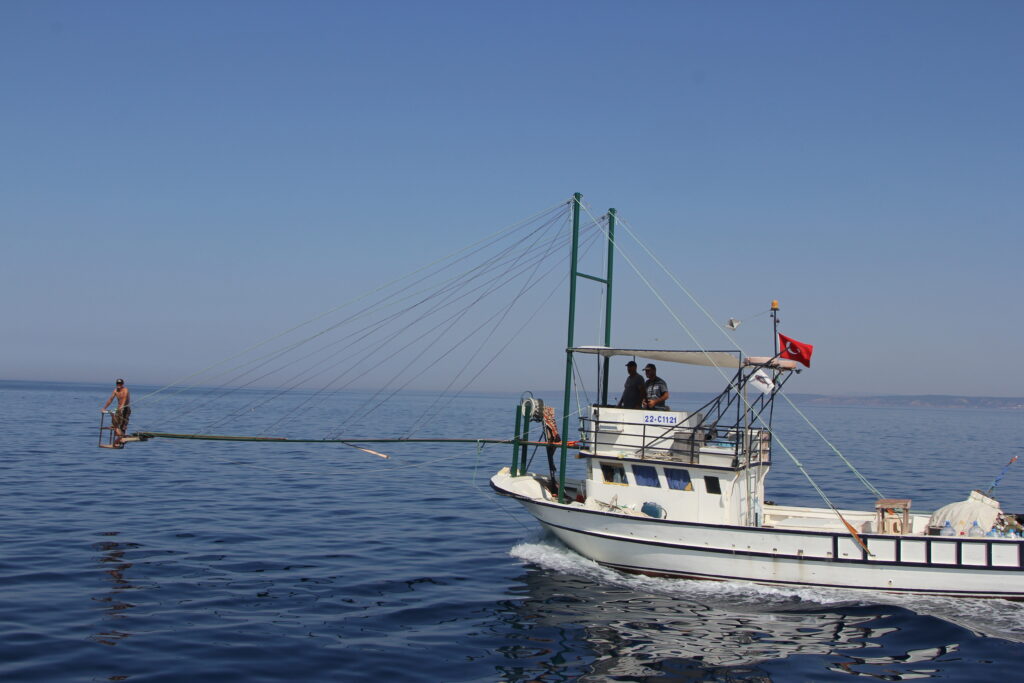
Releated Posts
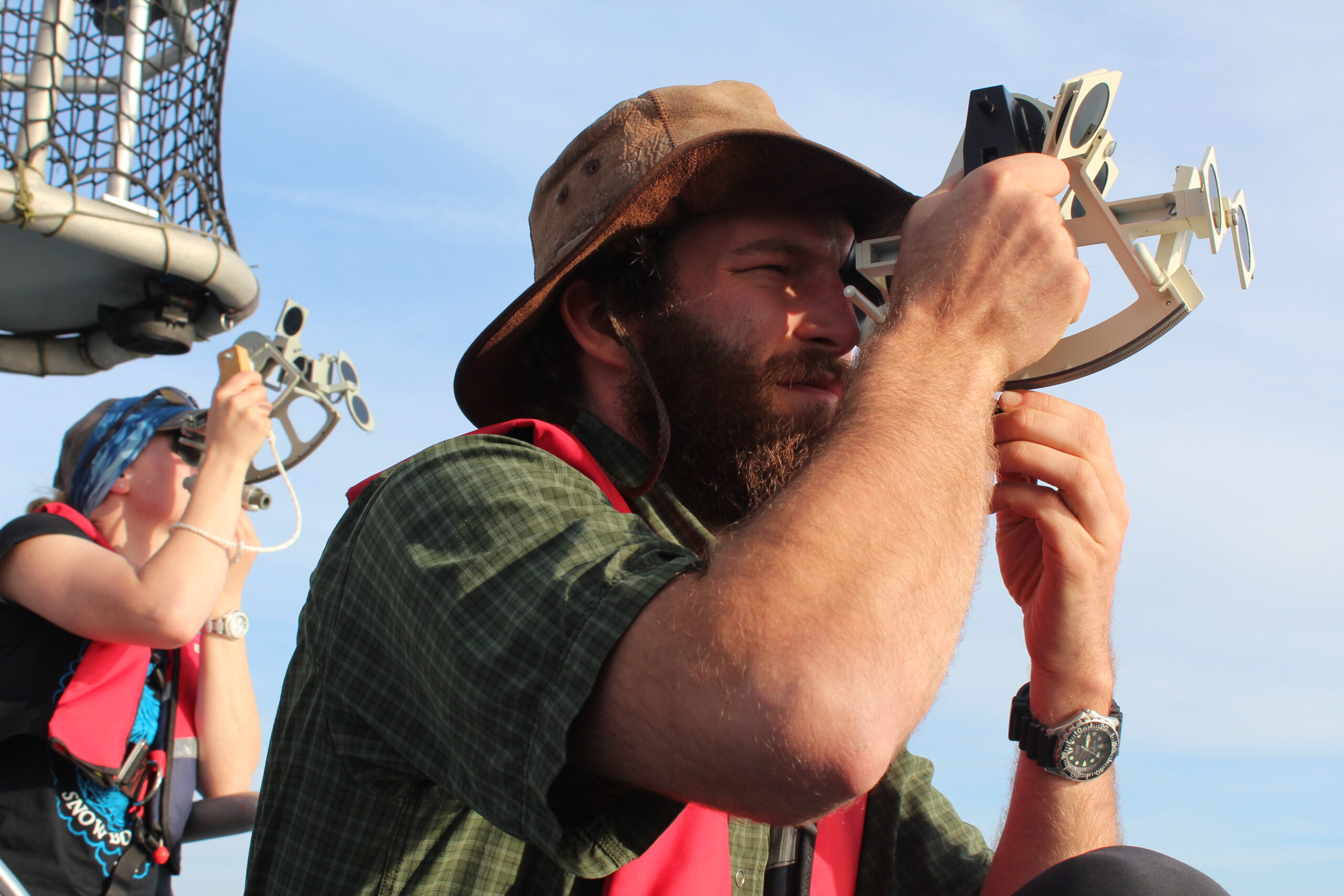
RYA Yachtmaster Ocean Theory – Everything You Need to Know
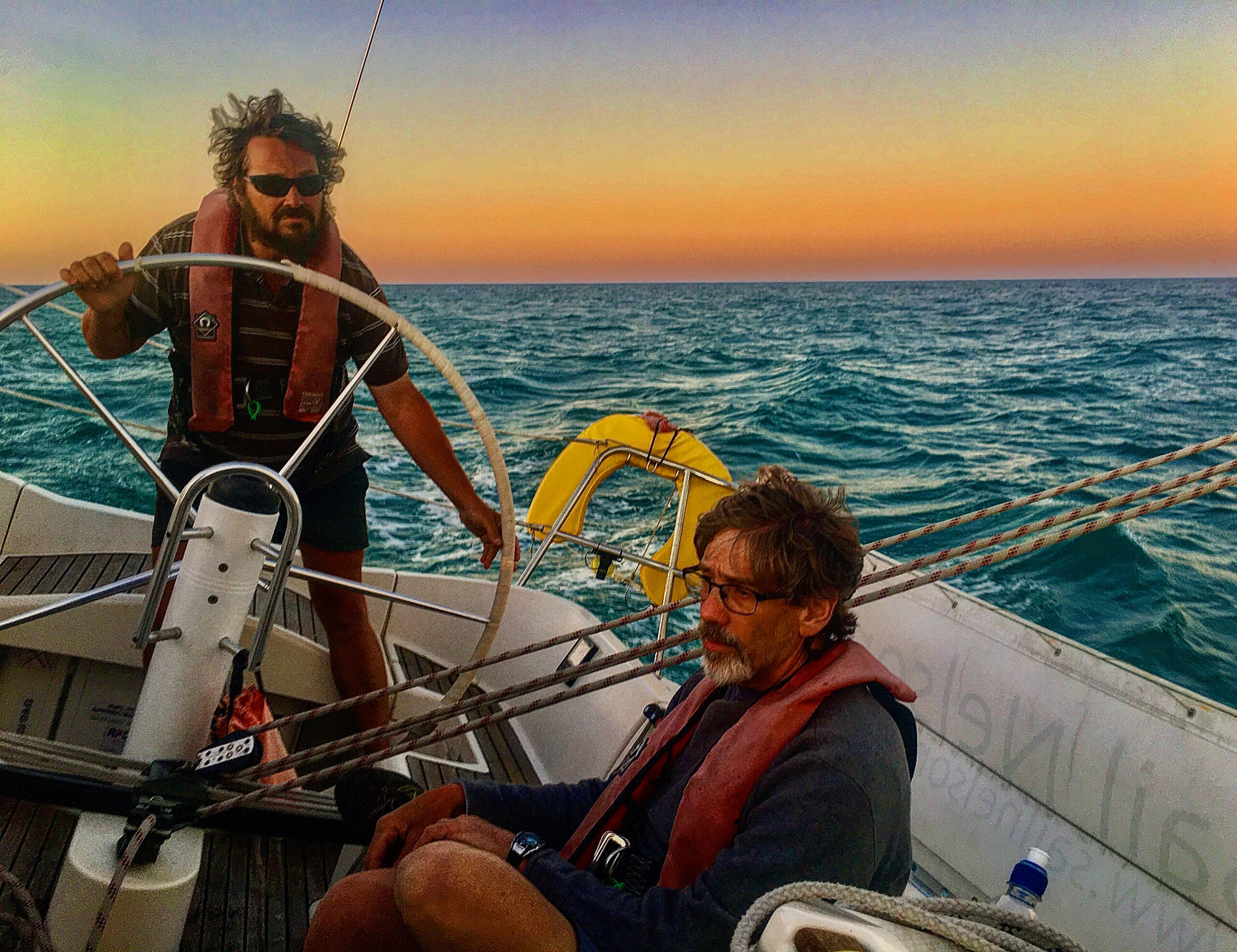
RYA Yachtmaster Offshore Sail – Everything You Need to Know
Your Comment*
Save my name, email, and website in this browser for the next time I comment.
- Get Certified
- Superyacht Training

Why Choose IYT Worldwide for Your Certification?
The Superyacht industry offers exciting career opportunities around the globe and an IYT certificate offers the most internationally recognised maritime certification in the industry.
- No other yacht certification authority is as international recognised.
- No other yachting company offers such a diverse range of courses.
- Every IYT (COC) course requires a practical on-the-water examination.
- No other national yachting marine certification authority has an internationally recognised ISO quality management system. We are proud to be certified by the Canadian General Standards Board (CGSB)
- No other yachting organisation has been built by professional mariners.
- No other yachting company offers high security certificates with QR code, hologram, photograph and signature strip.
IYT has over 20 years of industry leadership and continues to lead the global maritime industry in certification and nautical standards.
- Recreational
- Privacy Policy & Terms Of Use
- Become a Partner School
- Register with IYT
- Find a School
- IYT E-Learning
- Certificate Renewal & Replacement
- Recreational Training Course Progression
- IYT Passport
- Crossover Opportunities
- Course Progression
- Course Progression Interior
- Dive Boat Training
- Forms And Docs
- Instructor Training
- Personal Watercraft Operator
- Dinghy Sailing Programme
- IYT Try Sailing
- IYT Introductory Sailing Skills
- IYT Day Skipper / Crew Sail
- International Crew
- International Flotilla Skipper
- International Bareboat Skipper
- International Flotilla Skipper Sail – Catamaran
- International Bareboat Skipper Sail – Catamaran
- International Certificate of Competency (ICC Certificate)
- Powerboat Skipper
- Yachtmaster Coastal (Power or Sail)
- Yachtmaster Coastal Sail – Catamaran
- Yachtmaster Offshore (Power or Sail)
- Yachtmaster Offshore Sail – Catamaran
- Yachtmaster Ocean
- Patron de Yates (Yachtmaster Coastal Spanish edition)
- Marine Communications (VHF-SRC)
- Small Powerboat and Rib Master (MCA Recognised)
- IYT Commercial Tender License Course
- Weather Master
- Navigation Master
- Master of Yachts Coastal/Mate 200 Tons (Power or Sail)
- Master of Yachts Limited (Power or Sail)
- Master of Yachts Unlimited
- Superyacht Chef
- Superyacht Deck Crew Course
- Introduction to Yacht Marine Engineering
- Superyacht Hospitality Training
- Boat Engineer Course (SCV Code for Vessels Operating in the Caribbean)
- IYT-MSWI BoatMaster Course
- Become An IYT School
- Upgrade Your School
- Find A School
- Course Levels
- Instructor Qualifications
- Vessel Requirements
- Vessel and Facility Requirements
- Unauthorised Schools and Other Entities
- Shipping & Delivery
- Government Approvals

zephyr yachting
Rya yachtmaster training, rya yachtmaster training courses.
Zephyr Yachting RYA Yachtmaster Training courses in Antibes. Our expert instructors are here to coach you through the Yachtmaster scheme. This certificate is an excellent boost to you CV in the superyacht industry.
The RYA Yachtmaster Offshore Shore Based Theory course (Coastal Skipper) is designed to elevate your navigation proficiency for coastal and offshore voyages. Tailored for both motor and sail enthusiasts, this comprehensive course prepares you for the Yachtmaster™ Coastal and Yachtmaster™ Offshore practical exams. With a strong emphasis on advanced navigation techniques and meteorology skills, participants delve deep into the intricacies of coastal and offshore navigation, equipping them to navigate safely in diverse maritime environments.
The RYA Yachtmaster Practical training for motor cruising, includes both the Yachtmaster Offshore and Coastal. It offers participants an immersive learning experience over a duration of four days. These courses are meticulously structured to provide comprehensive preparation followed by a practical examination spanning one to two days. While the syllabus for both courses remains similar, the Yachtmaster Offshore candidates are expected to have accumulated more logged sea time, reflecting the increased complexity and demands for offshore navigation.

RYA Yachtmaster Offshore shore based theory (coastal skipper)

RYA Yachtmaster practical courses MOTOR

RYA Yachtmaster practical SAIL course

RYA Yachtmaster Offshore/Coastal complete training package POWER

RYA Yachtmaster Offshore/Coastal complete training package SAIL

RYA Yachtmaster Ocean Shorebased Course
Check out our reviews.

keep in touch
Phone: +33 493 33 34 04, email: [email protected].
website created by the agency
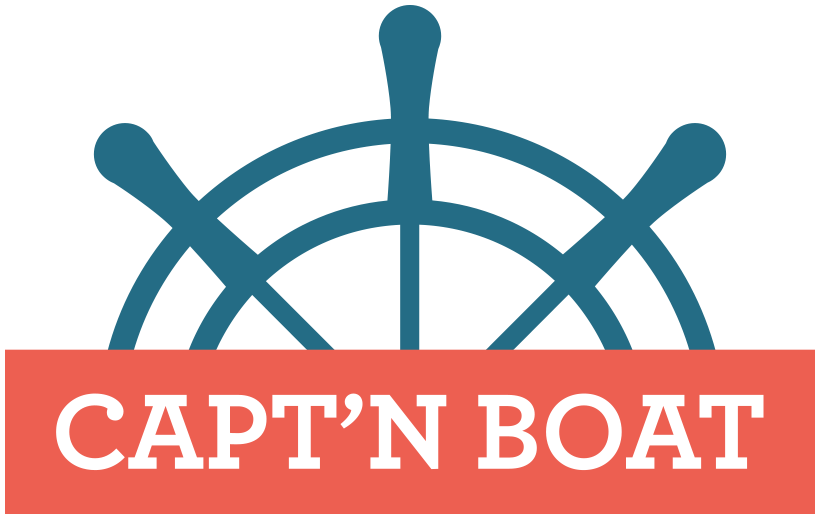
Master 200 GT: the gateway between the Yachtmaster and the Captain 200

Yachtmaster holders can, by using the Master 200 GT oral exam gateway, claim a visa recognition from France giving them the same prerogatives as a Captain 200 (french degree).
The Yachtmaster is a British certificate, issued by the Royal Association Yachting (RYA).
The United Kingdom being a signatory to the STCW Convention, it can issue the title of Yachtmaster STCW Endorsed. In theory, if the Yachtmaster title is “STCW Endorsed”, the skipper will be able to obtain the benefit of the STCW titles recognition between signatory states of the STCW Convention, subject to obtaining a recognition visa or to the establishment of a bilateral recognition agreement between countries.
However, France (signatory of the STCW convention) does not recognize the “STCW Endorsed” Yachtmaster as such and therefore does not issue any visa recognition. Skippers who have it are, therefore, not allowed to sail on a boat waving the French flag. This can be a source of frustration for skippers who are denied employment opportunities.
To allow Yachtmaster holders to operate on French boats, they need to obtain a new certificate: the MCA Master 200 GT; which is recognized by France and can be subject to a visa recognition.
With a Yachtmaster, the Master 200 GT certificate is easily obtainable.
The Master 200 GT is the bridge between the Yachtmaster and the Captain 200 . Without a Master GT MCA, it is impossible to get a visa recognition from France.
1. What is the MCA Master 200 GT?
The Master 200 GT is an English STCW certificate recognized by France through the issuance of a visa recognition.
The MCA Master 200 GT is very similar to the Yachtmaster Offshore. Therefore, it can be used by skippers on vessels up to 200 GT or by watchkeeping officers on vessels up to 500 GT.
The Master 200 GT can be “Limited”, allowing use up to 150 Nm offshore, or “Unlimited” for use without distance limits.
Skippers must complete their diploma with a GMDSS certificate . This can be either a GMDSS ROC (Restricted Operator Certificate) which limits the activity in GMDSS Zone A1, or a GMDSS GOC (General Operator Certificate) which allows an unlimited use.
A number of prerequisites are required from the seaman who wishes to obtain this gateway, as follows.
2. Obtaining the complementary MCA Master 200 GT exam
A. prerequisites to obtain this gateway.
First of all, to be able to use this bridge between the Yachtmaster and the Master 200 GT, some prerequisites are necessary:
- Be over 18 years old
- To have completed 6 months of sea service with a RYA Yachtmaster, or IYT Master of Yacht limited
- To hold an offshore RYA Yachtmaster or a commercially endorsed IYT Master of Yacht limited
- Have a valid ENG1 medical certificate
- Individual Survival Techniques (IST)
- Basic firefighting training
- Basic first aid (EM 1)
- Life safety and social responsibilities
- Operator certification: GMDSS ROC or GOC
- Have the HELM (Human Element, Leadership & Management) operational certificate
- Finally, pass the oral exam (see below for the content of the oral exam) of the MCA Master 200 GT. There is no MCA or RYA preparation course for the Master 200 oral exam. The program for the oral is: navigation, IRPCS, meteorology, cartography, business and MarPol law, Bridge procedures, etc.
In addition, candidates must complete a Notice of Eligibility (NoE) and send it to MCA. It is recommended that you allow at least 28 days before your file is processed. Oral examinations are held at the MCA offices.
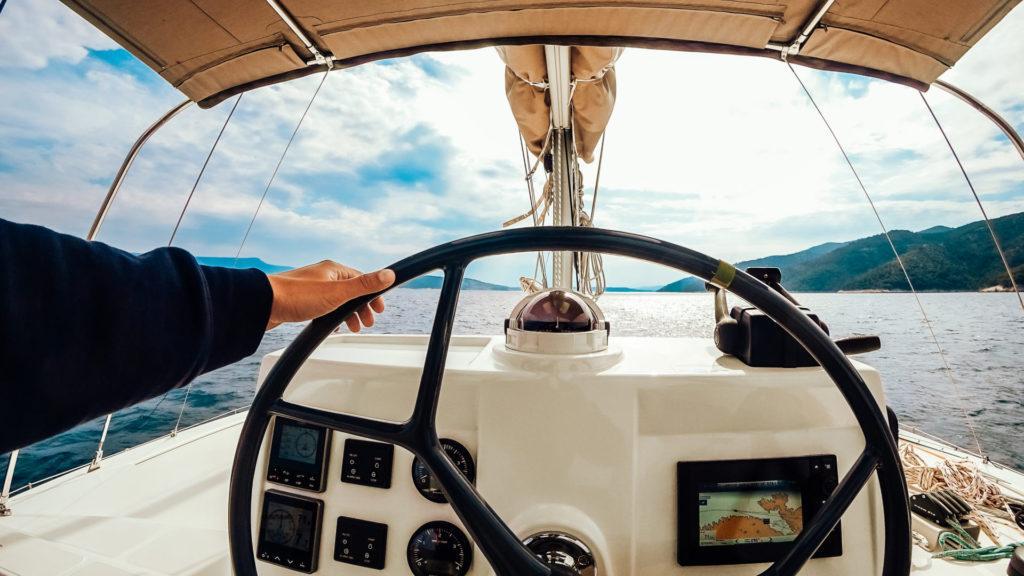
B. Content of the Master 200 GT oral exam:
More specifically, and to put all the chances on your side, here is a summary of the content of the MCA Master 200 GT exam.
1. Plan and execute a passage (chart and navigation instructions, light lists, tide tables, radio warnings)
- Be familiar with the IMHA A and B buoyage system
- Identify and analyze the limitations and sources of error of electronic charts and navigation systems
- Know how to use Radar and ARPA (practical use, mode of operation, limitations and sources of error, including basic radar plotting techniques)
- Know the application of variation and deviation to convert true heading to compass heading, and understand the basic causes of variation and deviation
- Locate the ship’s position on the chart based on magnetic bearings and/or radar ranges, position by latitude and longitude
- Find the magnetic heading to steer and the ETA for a given destination given the starting position and recording speed
- Identify transits and chart trim marks to plan a safe approach to a port or anchorage
- State and explain the meaning of common chart symbols and abbreviations
- Know how to obtain and use weekly Notices to Mariners to correct charts
- Research high and low water times and predict heights and/or intermediate times for standard and secondary ports
- Find and predict tidal range and rate from charted tidal reference points, and tidal current atlases
2. Meteorology
- Know the sources of weather information
- Interprete weather forecasts, including knowledge of the characteristics of various weather conditions
- Use and interpret information obtained from on-board weather indications
3. Maintain a safe navigation watch
- Demonstrate a thorough knowledge of the principles of marine navigation monitoring, including anchor monitoring; such as STCW Code A-VIII and ICS Bridge Procedures Guide
- Understand the use of bridge equipment including echo sounder and Navtex
- Be familiar with steering control systems, including autopilot and operation from manual to automatic control and vice versa
- Maintain navigation records
- Know the circumstances under which the captain should be called to the bridge
- Know the principles of handing over and relieving the bridge watch
4. International regulations for preventing collisions at sea (ColRegs)
- Demonstrate a thorough knowledge of ColRegs including the requirements: to proceed at a safe speed, keep an eye out for and recognize lights and shapes, and fog signals for all classes of vessels, recognize audible maneuvering signals and light signals. Recognize a developing collision situation by compass, radar or visual reference
- State the measures to be taken during the day and at night to avoid collisions. Describe precautions to be taken when navigating in or near areas of reduced visibility; evaluate the probability of a radar-only collision of a vessel and the steps to be taken to avoid a collision. Describe the requirements for navigating in or near traffic separation schemes. Describe the need to navigate in narrow channels
- Respond to emergencies, operational safety and pollution control
5. Distress signals and communication
- State the conditions under which distress signals may be used; understand the different types of distress signals, actions to be taken upon receipt, and obligations to assist
- Know the proper use of pyrotechnics, EPIRBS and SARTS, including the appropriate circumstances for their use
- Understand proper distress communication procedures, including the terms Mayday, PanPan and Safety messages
- Emergency communication with GMDSS regulations
6. Vessel manoeuvres
- Know the steps to prepare for departure, tasks before going to sea, docking, entering a dock, berthing alongside docks, piers or other vessels; stowing to buoys
- Know how to use and maintain mooring lines and associated equipment
- Know how to use the rudder, steer the ship, know the effects of propellers on the ship’s direction, the effects of wind and current, stopping, going astern and turning short
- Act in the event of a failure of the deck, telegraph or steering gear control, including emergency steering arrangements
- Know anchoring procedures
- Understand precautions to be taken when using winches and windlasses
- Understand the precautions to be taken when mooring and unmooring
7. Responses to emergencies
Be able to respond to emergencies by adapting the posture according to the different scenarios:
- Initial actions as follows: man overboard, collision, grounding, flooding or major mechanical damage, initial damage assessment and control, marine environmental protection
- Fire prevention, use and maintenance of firefighting apparatus, shutdown and isolation of facilities and equipment, evacuation and breathing apparatus, fire and safety plans
- Operation and maintenance of rescue apparatus and equipment, including immersion suits and thermal protection aids, pyrotechnics, and ammunition launching devices
- Launching of liferafts and rescue boats; proper rigging of liferaft hydrostatic release units
- Basic principles of survival
8. Pollution Prevention Requirements
- Know good pollution prevention practices in ports and at sea, as well as measures to be taken to prevent pollution during bunkering
- Know how to respond to pollution incidents in ports and at sea
- Know the basics of waste management and disposal of waste and oil residues
9. Vessel Navigability
- Understand the fundamentals of watertight integrity and closing all openings, including hatches, access hatches and watertight doors
- Understand the difference between good stability and poor stability, and recognize the warning signs of the latter
- Increasing and decreasing weights
- Low freeboard
- Clogged deck clearances and scuppers
- Loose tanks
- Preparing for weather, ensuring and maintaining watertightness
10. Business and Law
- Understand the content and application of the applicable codes, namely the “Small Vessel Commercial Code 1” and the Large Commercial Yacht Code (LY3) 2
- Be familiar with the Code of Safe Work Practices for Merchant Mariners 3, its content and practical application
- Know the requirements for drills and exercises, including fire, emergency and abandon ship drills
- Understand the legal requirement to insure a seaworthy vessel
- Know the basics of salvage laws
- Understand the requirements for safe manning, hours of work and watchkeeping
- Identify the circumstances under which a vessel requires a crew agreement
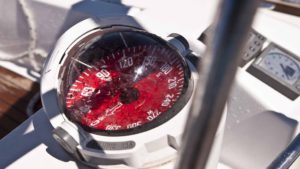
3. Ask for a visa recognition to work in France
Once the Master 200 GT is obtained, the holder can apply for a visa recognition from the competent authority.
The visa recognition attests to the seaman’s competences to perform functions equivalent to his or her certificate in foreign countries.
A. How to apply for a visa recognition?
To obtain a visa recognition, you must put together a file with the following documents:
- The CERFA for visa application , duly completed and signed,
- A copy of your valid seaman’s certificates, approved by the administration of the country of issue (here the Master 200 GT), with the STCW reference of the title,
- A medical check-up, issued within the last 2 years by a doctor authorized by the country of issue of the certificate or by a French seamen’s doctor,
- An identity photo.
B. To whom should the application for a visa recognition be addressed?
The request for a visa recognition must be made by the seaman or the owner of the ship under the French flag on which the sailor, holder of the certificate concerned, is embarked.
This request should be sent to the “employment – maritime training” department of the DIRM (Direction InterRégionale de la Mer) of a DDTM (Direction Départementale des Territoires de la Mer) of the maritime coastline on which the vessel is operating (DIRM-Mediterranean, for example, if the vessel on which the sailor is embarked is operated in one of the departments of the Mediterranean coastline).
To know more about how you can obtain a recognition visa, see our dedicated blog post here.
C. Working in France with a visa recognition
Once the application has been validated and the visa recognition obtained, the French authorities certify that the foreign title held by the seaman corresponds to an equivalent level of function in French regulations.
By issuing this visa, France authorizes the holder to work under the French flag for a limited period of 5 years. If the recognized title expires earlier, the visa recognition will also expire.
The renewal of the visa recognition must be explicitly requested.
Note 1: Obtaining a visa recognition does not entitle the holder to the issuance of the equivalent French title and the related rights under French law. (e.g.: obligation to hold a French title for access to higher education).
Note 2: Obtaining a visa recognition is not sufficient for a foreign sailor to be able to command a French vessel. For this specific function, the foreign sailor must also be evaluated by a national jury. This national jury, presided over by the DIRM in its “commercial” formation, will examine the officer’s knowledge of the French language and national maritime regulations.
In summary, to work in France or under the French flag, the holder of a Yachtmaster STCW Endorsed must:
✅ Obtain the Master 200 GT by validating the Master 200 GT oral exam ✅ Once the Master 200 GT is obtained, apply for a visa recognition from the competent authority. ✅ When the visa recognition is issued to the seaman, he can then practice for 5 years in France.
Not too much of a headache? If you are interested in this article, we recommend you to suscribe to our newsletter special seamen to stay informed!

Related Posts
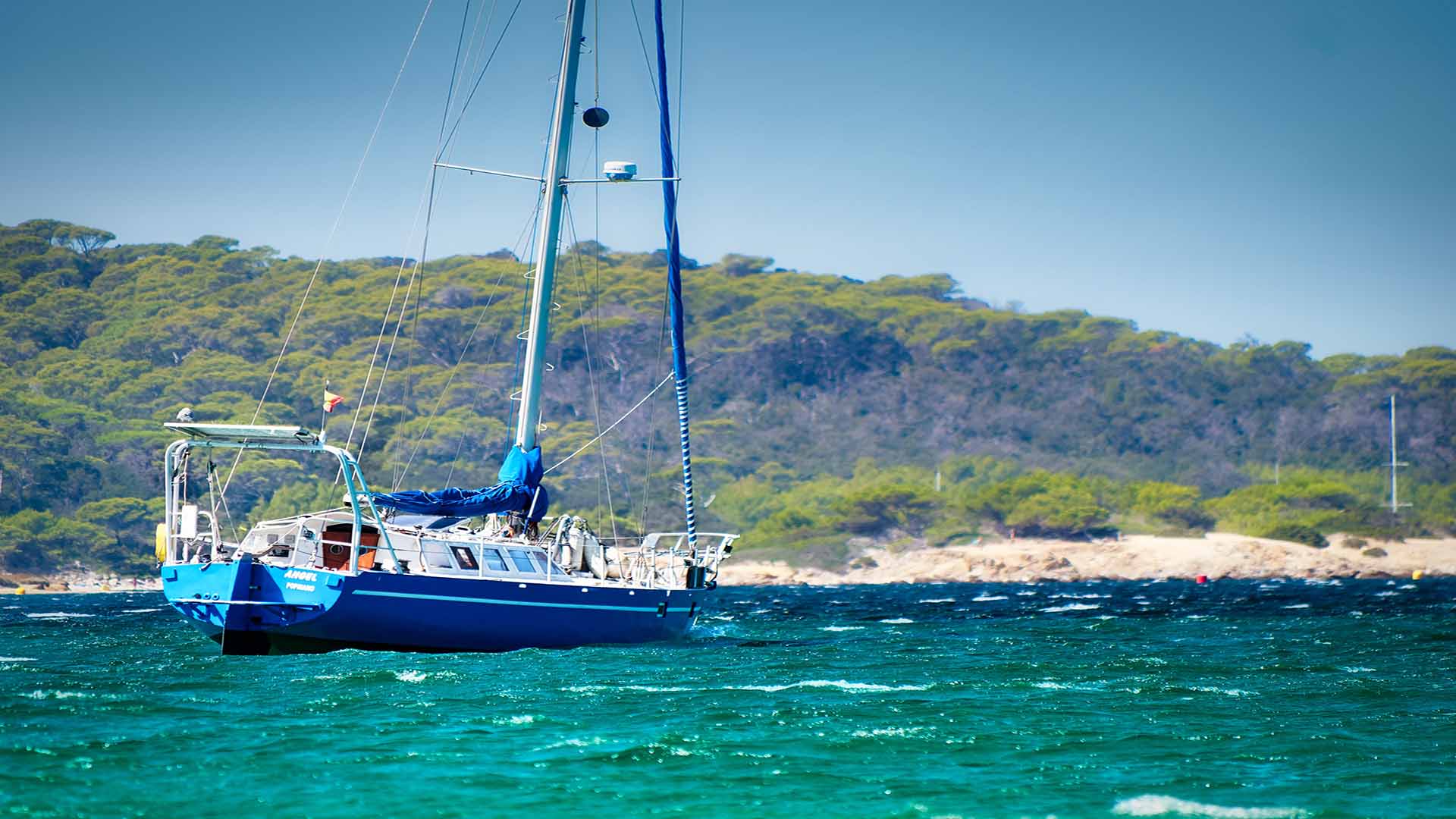
How can I work in France with a RYA Yachtmaster Offshore certificate?

Which certificate to become a skipper? Capitaine 200, Yachtmaster or Master Commercial Yachting 200 GT
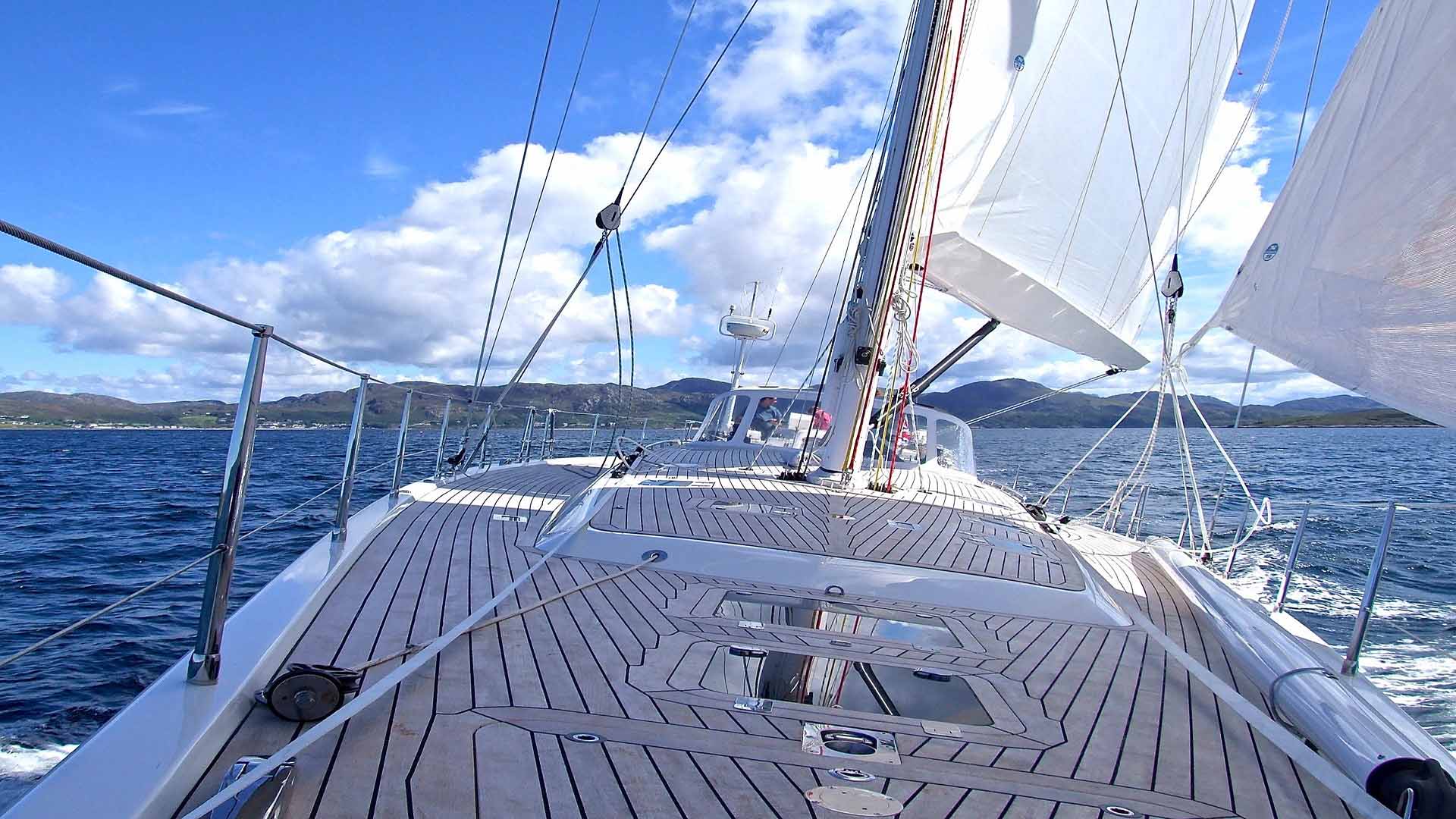
Becoming a skipper: qualifications, trainings, remuneration ..
Tel +33 (0) 6 08 65 45 01
Email [email protected]
- Cruising Area
- Client Feedback
- RYA Start Yachting
- RYA Competent Crew
- RYA Day Skipper
- RYA Coastal Skipper
- Combination Courses
- ICC International Certificate of Competence & CEVNI
- RYA Theory Courses Online
- RYA Essential Navigation and Seamanship
- RYA Day Skipper Online
- RYA Coastal Skipper and Yachtmaster Offshore Online
- RYA Yachtmaster Ocean Online
- RYA Interactive VHF/SRC Radio Course
- RYA First Aid
- RYA Diesel Engine Course
- RYA/MCA Yachtmaster Modular
- RYA/MCA Yachtmaster Assessment Days
- RYA/MCA Yachtmaster Prep' Week
- Professional Practices and Responsibilities
- Commercial Endorsement
- Exclusive Skippered Cruise
- Bespoke Tuition
- Corporate Events
- Tidal Conversion Course
- Mile builders
- Gift Vouchers
- Stages RYA Pratique
View our downloads
Click here to view our downloads
We are a recognised RYA training centre
View our latest photos in our online gallery
You are here:
- You are here
Sailing School Brittany offre un cycle complet de stages selon le cursus de la RYA afin de répondre à vos besoins particuliers.
Les certificats de compétences de la RYA (Royal Yachting Association) sont respectés et reconnus comme les meilleurs au niveau international. Nous nous adressons, à la fois aux débutants, aux plaisanciers expérimentés et aux candidats au diplôme de Yachtmaster. Les cours sont en anglais et nous accueillons des stagiaires du monde entier tout au long de l’année
Nous proposons des stages pratiques et théoriques et vous pouvez accéder au cursus à tous niveaux selon votre expérience. Nos cours ont lieu dans les eaux abritées du Golfe du Morbihan et de la baie de Quiberon. Vous vivrez à bord du bateau pendant les stages pratiques et serez impliqués dans tous les aspects d’une croisière.
Tout est compris dans nos tarifs (repas à bord, carburant, frais de marina, instructeur, ciré au besoin) sauf un repas à terre pour déguster les spécialités régionales. Nous fournissons couette, oreillers, draps et serviette. Bien évidemment les gilets de sécurité et harnais sont fournis
Sur notre page ‘ downloads ’ vous trouverez le sommaire du contenu de chaque stage. Nous vous aiderons à choisir le cours qui vous correspond le mieux ou nous vous proposerons une formation personnalisée.
N’hésitez pas à nous contacter pour de plus amples renseignements.
Great school..
Had lot of experience and learnt a lot from instructor, Dave, while always having fun in what we were doing. Excellent food items and menu appealing to all tastes.
Very comfortable and well-maintained boat. Great instruction. And very good organisation! It made me comfortable with the choice I made even before coming to Brittany, thank you Alison. Excellent food! Now I understand better the comments left on the website.
I really enjoy the style of teaching, the atmosphere and felt Dave's experience could not have been beaten by similar school.
Friendly, patient and take time to explain you when you don't understand. Perfect, good instruction, friendly, excellent food.
Dave was brilliant
I had complete confidence in him, loved his sense of humour. Food was absolutely excellent and plentiful. Booklet of cake recipes would have been brilliant too! Never thought that I would enjoy it so much - loved it.
Really professional & well run
Training was well delivered & effective, well-tailored to my training needs & matched to experience. Dave has a well-judged & supportive approach to training - an excellent mentoring style, creates a great environment for learning. Catering was outstanding, many thanks Alison. It would be invidious to choose between the excellent cakes - Yum. A really professional & well run course, a well-equipped & maintained boat, a thoroughly enjoyable & good humoured week of mentoring & learning.
Complete our online enquiry form and we'll be in touch
- Email Address *
- Submit enquiry form
Keep up to date with our sailing news
Follow us --> --> -->

IMAGES
COMMENTS
The gold standard. The RYA Yachtmaster® Certificate of Competence is often the ultimate aim of aspiring skippers. It is a well known, highly respected qualification worldwide, proving your experience and competence as a skipper. Unlike other qualifications in the cruising programme, there is no formal training course to become an RYA Yachtmaster.
So, I went ahead and signed up for the next available slot that November. Like other British sailing schools, Sunsail's prep course (a highly recommended prerequisite to the RYA Yachtmaster exam) is a five-day on-the-boat affair. After that, the RYA examiner comes on board and tests two people at a time in succession.
Yachtmaster. A Yachtmaster qualification is a certificate of competence of the ability to handle either a sailing boat or motor boat (as endorsed) in certain prescribed conditions. Three different titles are specified; Yachtmaster Coastal (previously - and in some countries still - called Coastal Skipper), Yachtmaster Offshore, and Yachtmaster ...
The Ocean Academy is fully accredited to offer the RYA Power Boat Level 2 Course (PBL2). We offer this course in a two-day theory and Practical course, or a three day evening class for those crew members who are working on-board during the day. The course is offered on our modern and well equipped 23' (7m) center-console training vessel, with ...
To become a fully-fledged Yachtmaster, this practical test is the one that really counts. Yachtmaster Prep. Meteorology matters: a favourite with examiners is to produce a weather map and invite you to analyse it. Be ready and know your subject. This is a non-RYA course and, as such, has no official status or syllabus.
The gold standard. The RYA Yachtmaster® Certificate of Competence is often the ultimate aim of aspiring skippers. It is a well known, highly respected qualification worldwide, proving your experience and competence as a skipper. Unlike other qualifications in the cruising programme, there is no formal training course to become an RYA Yachtmaster.
RYA Yachtmaster Theory is an in-depth course with a wide subject field. But in short it will include position fixing, magnetic compass, tides, tidal streams, buoyage, lights, pilotage, and introduction to GPS and plotters, meteorology, collision prevention regulations, safety, navigation and passage planning among a lot more to numerous to go ...
La journée commence à 09h00 et finit vers 21h00. Vous serez mis à l'épreuve et en fin de la journée l'instructeur vous proposera une formation personnalisée selon vos besoins. Le prix est 200€ ttc. Si à la suite de cette journée, vous réservez une semaine Yachtmaster Prep' 50€ seront remboursés. RYA/MCA Yachtmaster Preparation.
A Yachtmaster is a person with a wealth of maritime knowledge who can cope with plain sailing and motor cruising and is also able to cope in demanding situations. Our Yachtmaster offshore qualification is recognised and respected all around the world and is the ultimate aim of many skippers, both professional and recreational. ...
The candidate's eligibility for Yachtmaster Offshore program is defined by a number of requirements. First and foremost, the logged sea time must show a minimum of 2500 nautical miles, about half of which should be in tidal waters. There is a huge debate as to what tidal waters are, and the RYA leaves it to the Yachtmaster candidate to decide ...
The RYA Yachtmaster online theory course takes your theory knowledge to the standard required for the Yachtmaster Coastal and Yachtmaster Offshore practical exams. This course advances your skills as a skipper of a yacht or motor boat, with an emphasis on navigation and passage planning for more complex coastal or offshore passages by day and ...
Yachtmaster Offshore Training. The IYT Worldwide Yachtmaster Offshore certificate is a recreational certificate of competency to command sailing and/or power vessels up to 24 metres in length up to 150 nm offshore. It is a comprehensive theory and live aboard course consisting of five days classroom theory and a practical component of six days ...
Les différents types de Yachtmaster. Le Royal Yachting Association ou RYA, équivalent britannique de la FFVoile, délivre des diplômes baptisés Yachmaster, validant une compétence en tant que chef de bord, nécessaires pour travailler comme skipper.A l'issue d'une formation, il est possible de passer l'examen du Yachtmaster, qui comporte une partie théorique et une partie pratique.
The RYA Coastal Skipper and Yachtmaster Theory is suggested to take a minimum of 40 hours of learning, plus exam time. I believe the average to be about 50 hours in total. How this time is shaped can vary. In online courses, you can generally work at your own speed, while in classroom environments, anything from evening classes of 2-3 hours a ...
Becoming a Yachtmaster Offshore Certificate of Competence Holder. While you can proceed towards the RYA Ocean shorebased course and the Ocean practical steps (qualifying passage and sights) you can not proceed to the Oral exam without first holding the Yachtmaster Offshore Certificate of Competence.. RYA Ocean Yachtmaster Shorebased Course. This is a 40-hour theory course.
IYT operates more boating courses with more government approvals through more schools, in more countries and in more languages than any other boating organization in the world. We are proudly ISO 9001:2015 approved. International Yacht Training Worldwide is the global leader in International Certificate of Competence, Superyacht Crew training ...
The RYA Yachtmaster® Ocean is experienced and competent to skipper a yacht on passages of any length in all parts of the world. Full details of the exam syllabus and requirements are shown in the RYA Yachtmaster Scheme Syllabus and Logbook (G158), which is available from the RYA webshop. The exam consists of an oral and written test.
5 60nm passages, 2 as skipper. Min. Age. 18. Exam. 8 hours to 2 days on the water. Aim. To work commercially on a sailing vessel under 24m in length within 150nm of a harbour. Course Info. The RYA Yachtmaster Offshore Motor ticket is considered the most useful and credible of all motor cruising qualifications.
IYT has over 20 years of industry leadership and continues to lead the global maritime industry in certification and nautical standards. Acquire industry recognized superyacht training offered at over 250 IYT schools in over 56 countries worldwide. Find out how you can start learning today.
The RYA Yachtmaster Practical training for motor cruising, includes both the Yachtmaster Offshore and Coastal. It offers participants an immersive learning experience over a duration of four days. These courses are meticulously structured to provide comprehensive preparation followed by a practical examination spanning one to two days. While ...
To allow Yachtmaster holders to operate on French boats, they need to obtain a new certificate: the MCA Master 200 GT; which is recognized by France and can be subject to a visa recognition. ... This national jury, presided over by the DIRM in its "commercial" formation, will examine the officer's knowledge of the French language and ...
Sailing School Brittany offre un cycle complet de stages selon le cursus de la RYA afin de répondre à vos besoins particuliers. Les certificats de compétences de la RYA (Royal Yachting Association) sont respectés et reconnus comme les meilleurs au niveau international. Nous nous adressons, à la fois aux débutants, aux plaisanciers ...
Examen final Yachtmaster Offshore (Samedi 9 - Dimanche 10 Décembre) 24 jours incluant l'examen. L'examen du RYA Yachtmaster Offshore est organisé les deux derniers jours de la formation. Coût de la formation RYA/MCA Yachtmaster Offshore. Les 15 semaines €8,950. Un Module €3,750.